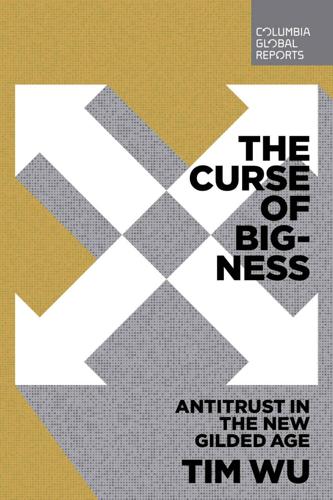
The Curse of Bigness: Antitrust in the New Gilded Age
by
Tim Wu
Published 14 Jun 2018
McGee, Praeger, 1971. 87 “destroyed my dreams of socialism”: “Aaron Director, Economist, Dies at 102,” Douglas Martin, The New York Times, Sept. 16, 2004. 88 “only that value we would today call consumer welfare”: “Legislative Intent and the Policy of the Sherman Act,” Robert H. Bork, Journal of Law and Economics, 1966. 89 “a kingly prerogative”: Trusts, Speech by John Sherman to the U.S. Senate, 1890. 89 “Bork’s analysis of the legislative history was strained”: “Antitrust’s Protected Classes,” Herbert Hovenkamp, Michigan Law Review, 1989. 89 “prefer a system of small producers”: United States v. Aluminum Co. of Am., 148 F.2d 416 (2d Cir. 1945). 90 “a value will be announced as pertinent”: “Legislative Intent and the Policy of the Sherman Act,” Robert H. Bork, Journal of Law and Economics, 1966. 91 “oversimplified economics”: “Antitrust Made (Too) Simple,” Christopher R.
…
Or as Louis Brandeis, the great prophet of a decentralized economy, put it, the antitrust laws answered a question: “Shall the industrial policy of America be that of competition or that of monopoly?” What happened? The law is currently suffering from an overindulgence in the ideas first popularized by Robert Bork and others at the University of Chicago over the 1970s. Bork contended, implausibly, that the Congress of 1890 exclusively intended the antitrust law to deal with one very narrow type of harm: higher prices to consumers. That theory, the “consumer welfare” approach, has enfeebled the law. Promising greater certainty and scientific rigor, it has delivered neither, and more importantly discarded far too much of the role that law was intended to play in a democracy, namely, constraining the accumulation of unchecked private power and preserving economic liberty.
…
However, a new intellectual opposition to antitrust was brewing, in a different form than before, and in an unexpected place. It formed at the University of Chicago, the school founded by John D. Rockefeller, and in the person of a professor named Aaron Director, and a particularly brilliant student of his named Robert Bork. The Rise of the Chicago School Since at least Adam Smith’s day, economists have favored competition and condemned monopoly. For most of the twentieth century, antitrust enforcement was, therefore, broadly supported by the economic profession in its home country. As Donald Dewey writes, “not a single American-trained economist of any prominence questioned the desirability of antitrust in the interwar years.”
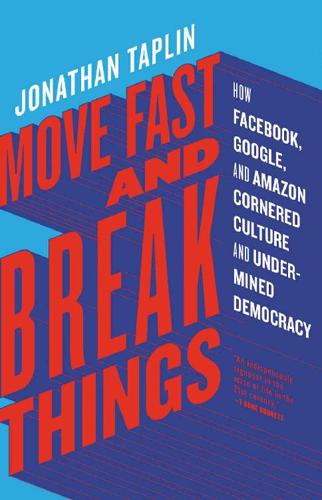
Move Fast and Break Things: How Facebook, Google, and Amazon Cornered Culture and Undermined Democracy
by
Jonathan Taplin
Published 17 Apr 2017
Austin Carr, “Reddit Co-Founder, The Band’s Ex-Tour Manager Debate SOPA, Anti-Piracy and Levon Helm’s Legacy,” Fast Company, April 19, 2012, www.fastcompany.com/1834779/reddit-cofounder-bands-ex-tour-manager-debate-sopa-antipiracy-and-levon-helms-legacy-video. Kurt Andersen, “You Say You Want a Devolution?” Vanity Fair, January 2012. Chapter Six: Monopoly in the Digital Age Much of the research on Robert Bork came from an interview with former secretary of labor Robert Reich, who was both a student and a research assistant to Bork in the 1970s. Robert Bork, Antitrust Paradox (New York: Basic Books, 1978). Barry Lynn, Cornered: The New Monopoly Capitalism and the Economics of Destruction (New York: John Wiley and Sons, 2010). Lee Epstein, William Landes, and Richard Posner, “How Business Fares in the Supreme Court,” University of Minnesota Law Review, vol. 97, no. 1, www.minnesotalawreview.org/articles/volume-97-lead-piece-business-fares-supreme-court/.
…
To understand how that happened, we need to look at the nature of monopoly capitalism and how an old and largely discredited form of robber-baron capitalism took on a new form in the digital age. CHAPTER SIX Monopoly in the Digital Age Competition is for losers. —Peter Thiel 1. Robert Bork did more than any individual in the twentieth century to embed the libertarian free-market principles of Ayn Rand and Milton Friedman into the heart of the American economic and judicial system. Professor Bork’s class on antitrust law at Yale Law School was usually packed. In 1971, he had taught Bill Clinton and his soon-to-be wife, Hillary, as well as Robert Reich, Clarence Thomas, and Richard Blumenthal.
…
As the New York Times noted in his obituary, this stance cost him a seat on the Supreme Court: “He also wrote a fateful article for The New Republic in 1963—one that played a key role in his 1987 confirmation defeat—condemning the public accommodation sections of the proposed 1964 Civil Rights Act aimed at integrating restaurants, hotels and other businesses. Mr. Bork said he had no objection to racial integration but feared that government coercion of private behavior threatened freedom.” Google, Amazon, and Facebook are all monopolies that would be prosecuted under antitrust statutes if it hadn’t been for Robert Bork. From the Ford administration all the way through to the Obama White House, Bork’s principles as expressed in The Antitrust Paradox, encouraging mergers and calling for less regulation, have ruled the antitrust division of the Justice Department. Just a few years after Bork published his book, Reagan’s soon to be appointed head of the antitrust division, William Baxter, told the New York Times that he would “pursue an antitrust policy based on efficiency considerations.”
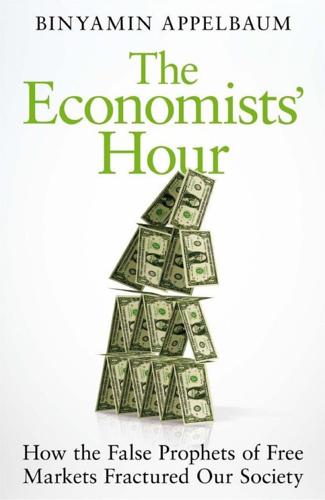
The Economists' Hour: How the False Prophets of Free Markets Fractured Our Society
by
Binyamin Appelbaum
Published 4 Sep 2019
Levi, later U.S. attorney general under President Ford. Levi would give four lectures, and then Director would give one. “Aaron Director would tell us that everything that Levi had told us the preceding four days was nonsense,” recalled one student. For some it was a religious experience. “We became Janissaries,” said Robert Bork, an early student who was one of the most influential popularizers of Director’s ideas.* Ronald Coase, a colleague who later won the Nobel Prize in economics for his work integrating economics into legal theory, also counted himself a disciple of Director, saying, “I regarded my role as that of Saint Paul to Aaron Director’s Christ.
…
The Supreme Court, in siding with Utah Pie, once again emphasized that the law was written to protect companies.38 Indeed, in 1936, Congress had reinforced the Sherman Act by passing the Robinson-Patman Act, which specifically prohibited large companies from charging lower prices to undermine local rivals. Robert Bork described the verdict as a violation of the laws of economics. The defendants, he wrote, “were convicted not of injuring competition but, quite simply, of competing.”39 Stigler, testifying on Capitol Hill, urged Congress to rewrite the laws of the United States. “I hope the subcommittee will reflect upon the fact,” he said, “that if all the prominent economists in favor of the Robinson-Patman Act were put in a Volkswagen, there would still be room for a portly chauffeur.”40 Director retired from the University of Chicago in 1965, moving to California, where he kept an office at Stanford.
…
District Court judge in California, told the Washington Post the lessons he learned in Miami induced him to issue a ruling that ended a federal system of quotas for contracts with minority vendors. “More and more,” Hauk said, “life is best explained not by religion, not by law, but by economics.”57 To justify the insertion of economics into antitrust law, Robert Bork rewrote history. After graduating from Chicago, Bork had become a professor at Yale Law School — where his students dubbed his class on antitrust law “protrust” — and then served as Nixon’s solicitor general.58 After returning to Yale, he wrote The Antitrust Paradox, a popular 1978 book that asserted the original purpose of the Sherman Antitrust Act was to maximize consumer welfare.
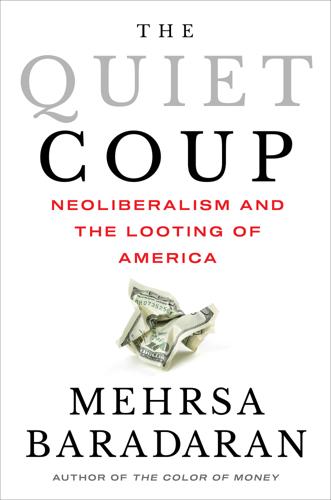
The Quiet Coup: Neoliberalism and the Looting of America
by
Mehrsa Baradaran
Published 7 May 2024
New York senator James Buckley, brother of National Review founder William F. Buckley, challenged the law on several grounds, including by arguing that campaign donations were political speech that was protected under the First Amendment. The case was not a straightforwardly partisan issue. President Gerald Ford sent his solicitor general, Robert Bork, to fight FECA’s mandate before the Court, but the administration took no official position. (Incidentally, Nixon had promised Bork a seat on the Supreme Court because of his loyalty to the President during the infamous Saturday Night Massacre—Bork was the Justice Department official who carried out the President’s order to fire Watergate Special Prosecutor Archibald Cox.)
…
Powell, who preferred to persuade his colleagues behind closed doors rather than throw bombs in solo-authored dissents like Rehnquist did, joined the majority after failing to convince them in this case. He did, however, write a separate opinion expressing “profound misgivings” with “large-scale or long-distance transportation of students in … metropolitan school districts.” In Milliken v. Bradley, decided in 1974, Solicitor General Robert Bork defended the state of Michigan’s redistricting plan as compliant with Brown. The NAACP had challenged the state’s desegregation program for fifty-three segregated schools, which, it argued, had in fact increased segregation. Bork argued that judicial “disruption” in “local affairs” was unwarranted because there was no intent to segregate.41 Like Keyes, the case hinged on questions of de jure versus de facto segregation.
…
The other meeting, “Under the Color of Law,” was the first annual conference of Yale Law’s Black alumni. Whereas “Under the Color of Law” was attended by about forty students and took place in the biology building a few blocks away from the law school, the Federalist Society meeting—which was keynoted by Robert Bork, then a Yale law professor—drew two hundred students from across the country. The Times reported that the Federalist Society had raised $24,000 from the Olin Foundation, then led by William Simon, and other donors. In contrast, a participant in the Black alumni conference quipped, “This is a poor people’s conference.”6 Within a decade, the Federalist Society was a force; within four decades, its members would dominate the nation’s judiciary at the highest level, holding a majority of seats on the Supreme Court and on federal appellate courts.
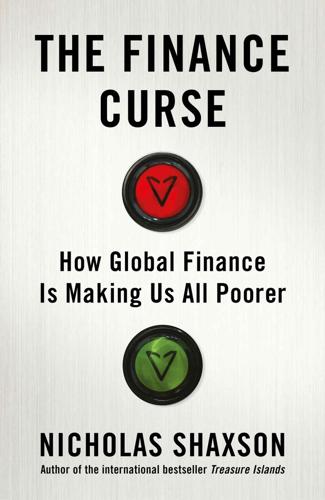
The Finance Curse: How Global Finance Is Making Us All Poorer
by
Nicholas Shaxson
Published 10 Oct 2018
That particular night Director hosted twenty dinner guests, largely conservative thinkers, including not just Friedman but George Stigler, who would go on to make a name for himself attacking government regulation, the British economist Ronald Coase and a fire-breathing conservative lawyer called Robert Bork.1 The University of Chicago in those days was a bear pit, an arena of intense macho intellectual combat where academics were constantly struggling to outdo each other with clever theories about efficient markets – theories that often perched on toe-curling assumptions – to adopt unconventional, even anti-social positions usually supporting big business and attacking big government.
…
It was also an extension of red-blooded neoliberalism, which argued that lawyers and laws should bow down to economists and economics, and everything had a price. The scale and success of this insurrection was made clear when in 1983 a group of Chicago-school economists was reminiscing about – one might even say gloating over – this power grab. There was a short exchange between Robert Bork, Richard Posner, an influential pro-monopoly jurist and economist, and Henry Manne, another influential (and corporate-funded) economist. Manne was an associate of the libertarian theorist James Buchanan, and they had joined with the conservative tycoon Charles Koch to penetrate academia by setting up think tanks to spread anti-government ideas.
…
Big business was attacking antitrust in the United States too, said Blum; it was ‘an area where pure political power was exercised to prevent prosecutions’.11 Yet British hostility was a minor difficulty when compared to the devastating blows that were to come from inside America itself, from Aaron Director’s students and dinner guests and above all Robert Bork. Bork was a cantankerous lawyer who had been growing steadily more agitated about impending moral collapse. He blamed feminists, multiculturalists, gays, pornographers and most especially leftist professors. He once asserted that ‘homosexuals, American Indians, blacks, Hispanics, women, and so on allegedly have been subjected to oppression’.
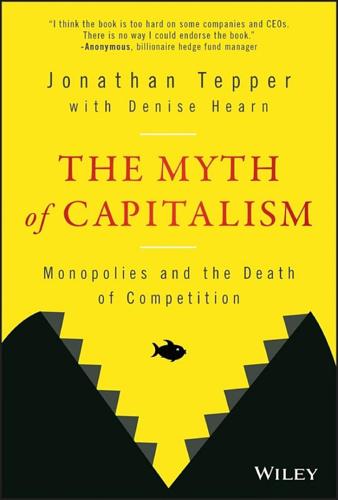
The Myth of Capitalism: Monopolies and the Death of Competition
by
Jonathan Tepper
Published 20 Nov 2018
After the crisis, he, too, wrote a book saying there may have been flaws in his views on the perfect functioning of markets. We'll never know how much damage he caused. Yet if there is one man who is responsible for the revolution in antitrust thinking, it is Robert Bork. Most American baby boomers remember him for his highly charged Supreme Court nomination hearings in 1987. Other readers may remember him as the only man willing to fire Special Prosecutor Archibald Cox at President Richard Nixon's orders in the Saturday Night Massacre. In the 1960s, Robert Bork published a series of highly influential articles that were hand grenades. His writing was brilliant, original, and entirely wrong. He attacked the state of antitrust policy in the United States.
…
Available at SSRN: https://ssrn.com/abstract=2579308 or http://dx.doi.org/10.2139/ssrn.2579308. 50. Robert H. Bork and Ward S. Bowman Jr, “The Crisis in Antitrust,” Columbia Law Review 65, no. 3 (1965). 51. Steven C. Salop, Symposium on Mergers and Antitrust. Economic Perspectives 1, no. 2 (Fall 1987): 3–12. 52. Milton Friedman, “The Business Community's Suicidal Impulse,” Cato Policy Report 21, no. 2 (March/April 1999). 53. Richard A. Posner, “The Chicago School of Antitrust Analysis,” University of Pennsylvania Law Review 127, no. 4 (April 1979): 925–948. 54. http://keever.us/greenspanantitrust.html. 55. Robert H. Bork, “The Goals of Antitrust Policy,” American Economic Review 57 (1967): 242. 56.
…
The economist John Maynard Keynes once said, “Practical men who believe themselves to be quite exempt from any intellectual influence, are usually the slaves of some defunct economist.” He should have included defunct law professors. The state we find ourselves in today can be traced back to the economists of the Chicago School. We would not have highly concentrated industries if it were not for Robert Bork and the Chicago School. Like all revolutions, an organized group of ideologues developed the ideas and spread them zealously. The Chicago School, led by Milton Friedman and George Stigler, was the vanguard of attack against antitrust laws. The great irony is that they decried monopolies and concentration of power, but in practice they created all the conditions necessary for them.
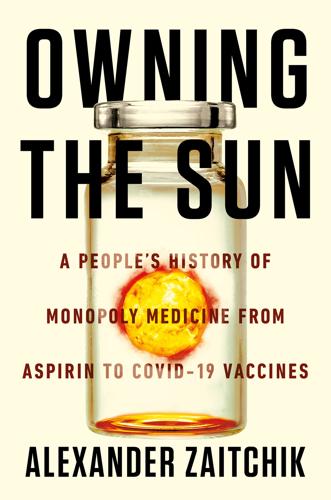
Owning the Sun
by
Alexander Zaitchik
Published 7 Jan 2022
But its redefinition was not of the sort Hayek had in mind. Over the next several years, the Project produced a multivolume revisionist history of antitrust that reversed conventional legal and economic thought on the subject. The Project’s breakout star was a young Chicago legal scholar named Robert Bork. A talented writer and polemicist, Bork produced some of the Project’s earliest reappraisals of the Sherman Antitrust Act and related case law. His writings defending the legality and competitive advantages of vertical mergers were as fulsome as his condemnations of antitrust actions were withering.
…
Stigler would teach the industry to control its own destiny, not by throwing red paint at the FDA and placing editorials calling for its abolition, but by reshaping the thinking and priorities of its administrators and affiliated scientists, politicians, and the public—all without them even knowing it was happening. The promised land described by Stigler was not regulatory capture, but cognitive capture. For the drug companies, this opened up a number of possibilities. Some lines of attack were already underway and awaiting their support, such as Robert Bork’s revisionist project to rewrite the histories of antitrust law and patent populism. Others remained in the planning stage, such as establishing quasi-academic research centers to produce papers and books. These centers would serve as “echo chambers” to ensure the industry’s message rang continuously in the public square.
…
Like other companies with an interest in regulation, Pfizer was curious to know what funding opportunities existed to support the work of Stigler and other neoliberals working along similar lines (and providing similar services). The movement’s biggest corporate funder at the time was General Electric, sponsor of the school’s Government-Business Relations program as well as the work of Robert Bork, who had become a human antitrust revisionist tornado, bouncing between courtrooms and boardrooms in a crusade to make the world safe for monopoly. If the Pfizer executives debriefed the law school dean about the enemies at the drug industry’s gate, it may have been a long meeting. In 1967, Wisconsin Democrat Gaylord Nelson picked up Kefauver’s mantle in the Senate Subcommittee on Antitrust and Monopoly and initiated hearings on “Competitive Problems in the Pharmaceutical Industry.”
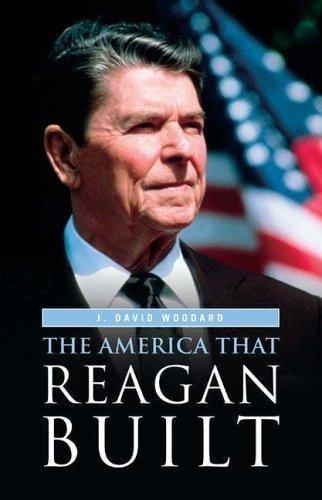
The America That Reagan Built
by
J. David Woodard
Published 15 Mar 2006
Powell was a ‘‘swing vote,’’ often casting the deciding vote in 5-to-4 104 THE AMERICA THAT REAGAN BUILT decisions.1 To tip the balance of power in favor of the conservatives, Reagan nominated Robert Bork, a District of Columbia federal appeals judge known for his articulate and outspoken convictions. If confirmed, Bork would be the nation’s 104th Supreme Court justice and a reliable vote for strict interpretation. The nomination set the stage for one of the biggest political battles of the decade. Robert Bork was born in 1927; he earned a law degree at the University of Chicago, and subsequently taught at Yale Law School. There he became one of the best-known conservative jurists in the country, opposing abortion and gay rights while favoring the death penalty.
…
Office in China, director of the Central Intelligence Agency, and as vice-president, heir apparent to the Reagan legacy. The hauteur of Democratic questions to Robert Bork was familiar to him. In the entire time he had been in Washington, the Democratic Party was dominant in the U.S. Congress, and Republicans succeeded only when they compromised and cooperated with the majority. Bush’s tenure as chairman of the Republican National Committee coincided with the Watergate scandal, and he was faced with the unenviable task of rebuilding morale in the dispirited party after the scandal. The same month Robert Bork was rejected, George Bush made his announcement to run for president. As a high school band played ‘‘The Yellow Rose of Texas’’ at the Hyatt Regency Hotel in Houston, the candidate took the podium to declare that he had no plans to go off in ‘‘radical new directions.’’
…
For example, Bork had written that the Fourteenth Amendment should apply only to race, and not to gender issues. Yet in his testimony, the judge said equal protection should apply to women.6 As he tried to moderate some of his positions to be acceptable to Democrats in Congress, Judge Bork alienated his supporters and further infuriated his detractors. All parties acknowledged that Robert Bork was one of the most astute legal scholars in the country; the American Bar Association gave him its highest rating, ‘‘exceptionally well-qualified.’’ But the credentials did not endear him to the Senate majority. After weeks of testimony, the Judiciary Committee voted 9 to 5 against confirming Bork.
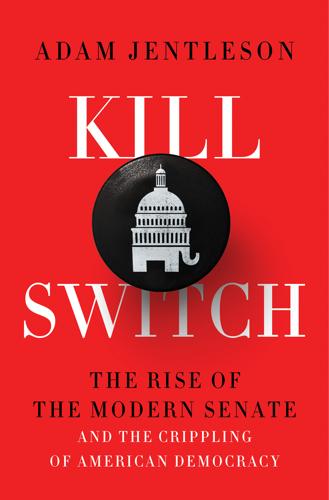
Kill Switch: The Rise of the Modern Senate and the Crippling of American Democracy
by
Adam Jentleson
Published 12 Jan 2021
Confirmation Bias: Inside Washington’s War over the Supreme Court, from Scalia’s Death to Justice Kavanaugh. New York: HarperCollins, 2019. 119. 7.Ibid. 12; McConnell, The Long Game. 259–61. 8.Wilentz, Sean. The Age of Reagan: A History, 1974–2008. New York: HarperCollins, 2008. 51. 9.Ring, Trudy. “Robert Bork’s Antigay Record.” Advocate. December 19, 2012. 10.Sen. Kennedy (MA). “Nomination of Robert Bork.” Congressional Record 133, Pt. 14 (July 1, 1987). 18519. 11.Marcus, Ruth. Supreme Ambition. New York: Simon & Schuster, 2019. 52. 12.Greenhouse, Linda. “Bork’s Nomination Is Rejected, 58–42; Reagan Saddened.” New York Times. October 24, 1987. 13.McMillion, Barry J.; and Rutkus, Denis Steven.
…
To perceive that a fight over a judicial nominee could be the point where the establishment and the superminority connected required a gut-level instinct that could only come from someone who had been building toward this moment for his entire career. IN 1987, President Reagan made a surprising choice to replace the retiring Supreme Court Justice Lewis Powell: a right-wing ideologue named Robert Bork. A darling of conservatives and a bête noire of liberals, Bork had wielded the knife in Nixon’s Saturday Night Massacre. After the top two officials in the Justice Department had resigned rather than carry out Nixon’s order to fire Archibald Cox, the Watergate Special Prosecutor, Bork obliged. In 1975, White House chief of staff Donald Rumsfeld put Bork on the list of candidates to replace Central Intelligence Agency director William Colby, who had proved too cooperative with the Senate’s investigation into abuses by the intelligence community being led by the chair of the Foreign Relations Committee at the time, Senator Frank Church.
…
While it was common for the president of one party to ask a Senate controlled by the other party to confirm a Supreme Court nominee, the president usually nodded to political reality by picking a nominee the other party could live with. Asking a Democratic Senate to confirm a radical conservative like Bork was courting trouble, and Reagan got it. On the Senate floor, Senator Ted Kennedy of Massachusetts delivered one of the most consequential speeches of his career. “Robert Bork’s America is a land in which women would be forced into back-alley abortions, blacks would sit at segregated lunch counters, rogue police could break down citizens’ doors in midnight raids, schoolchildren could not be taught about evolution, writers and artists would be censored at the whim of government, and the doors of the Federal courts would be shut on the fingers of millions of citizens,” he declared.10 The hearings erupted into the most contentious battle over a judicial nominee in recent memory.11 Despite the furor, Bork’s nomination did not face a filibuster when it came to the floor.
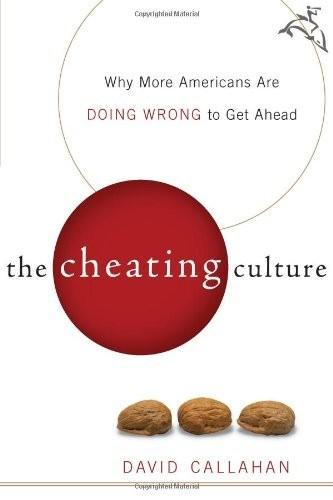
The Cheating Culture: Why More Americans Are Doing Wrong to Get Ahead
by
David Callahan
Published 1 Jan 2004
A 1985 Roper poll showed that large numbers of Americans thought yuppies were "overly concerned with themselves," a view that reflected a wider public discomfort with how the new individualism was evolving.15 But these sentiments had little traction in larger cultural debates. One reason was that no serious counterweight existed to the juggernaut of '80s materialism. Liberals were too busy worrying about Star Wars, the Contras, and Reagan Supreme Court nominee Robert Bork to attack the money culture. Also, somewhere along the line liberals had lost their ability to talk about values and their skills for moral storytelling. They spoke instead about "issues" and "constituencies." Among other things, this abdication allowed the right to successfully attack some parts of the new individualism while allowing other parts to flourish.
…
One reason that the corporate scandals took America by surprise is that conservative diatribes about the "cultural war" directed attention away from the morally corrosive potential of extreme capitalism. Thus distracted, Americans weren't expecting the many ugly excesses that seem, in retrospect, to have been inevitable. For example, in his 1996 bestseller, Slouching Toward Gomorrah, Robert Bork bemoaned the decline of America culture within a framework better suited to the '70s than to the '90s. Bork charged that "the enemy within is modern liberalism," that the dangerous left-wing orthodoxies of "radical egalitarianism" and "radical individualism" were bringing out the worst in Americans.
…
As it happened, though, that tilt was not nearly right enough for those who controlled AEI's purse strings. In the mid-1980s, AEI's main contributors threatened to cut off funding unless it turned much more conservative. It did. These days, AEI has a $17 million budget and provides a home to some of America's most rabid right-wing ideologues, including Robert Bork, Newt Gingrich, and Charles Murray. AEI's twenty-five-member board of directors includes exactly one scholar, James Q. Wilson. The rest of the board is packed with corporate CEOs, including the chiefs of ExxonMobil, Dow Chemical, State Farm Insurance, and American Express. These extremely busy men aren't there because they enjoy a good intellectual conversation.
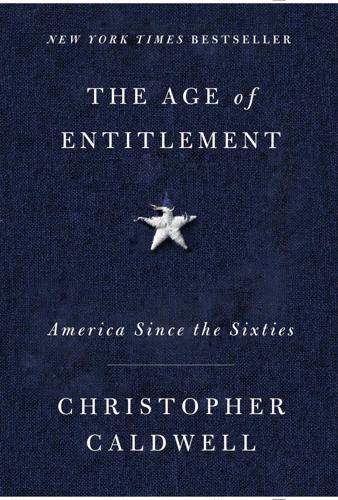
The Age of Entitlement: America Since the Sixties
by
Christopher Caldwell
Published 21 Jan 2020
“To be called African-Americans”: “Jackson and Others Say ‘Blacks’ Is Passé,” New York Times, December 21, 1988. a writer in Ebony magazine: Ibid. See also David Bradley, “The Omni-American Blues,” First Things, March 2017, 45–50. Bork had had misgivings: Robert Bork, “Civil Rights: A Challenge,” New Republic, August 31, 1963, 21–24. “Robert Bork’s America”: Congressional Record—Senate, July 1, 1987, 18518–19. “This is the most historic moment”: Ibid., 18519. This $50 billion “surplus” disguises: George J. Borjas, “The Economic Benefits of Immigration,” Journal of Economic Perspectives 9:2 (Spring 1995): 3–22.
…
Americans who felt that civil rights were justified by an especially shameful history also thought it was limited by that history. They would not have consented to it otherwise. Patterson was one of the few who understood that there were no logical grounds for limiting its work to desegregation. The Yale University law professor Robert Bork, in his own very different way, was another. Immigrant rights, children’s rights, gay rights, and the rights of the aged were not in the civil rights legislation, but they could easily be induced from it. The civil rights movement was a template. The new system for overthrowing the traditions that hindered black people became the model for overthrowing every tradition in American life, starting with the roles of men and women. 3 Sex The GI generation and its failures—The Feminine Mystique and male sexism—Playboy and male sexuality—Gloria Steinem, capitalism, and class—Roe v.
…
But although no one had voted to make it so, the social changes of Reagan’s late 1980s were all suddenly going with the grain of the Johnson revolution. The waning of a conservative quarter-century was clear by 1987, when the newly arrived Democratic majority in the Senate rejected the Yale Law School professor Robert Bork, a towering figure in American legal philosophy, for a seat on the Supreme Court. Their discomfort was understandable. Bork had had misgivings about the constitutional basis for civil rights law, noting its potential to endanger First Amendment freedoms, and he had argued this case powerfully, not just in law reviews but in the pages of the New Republic.
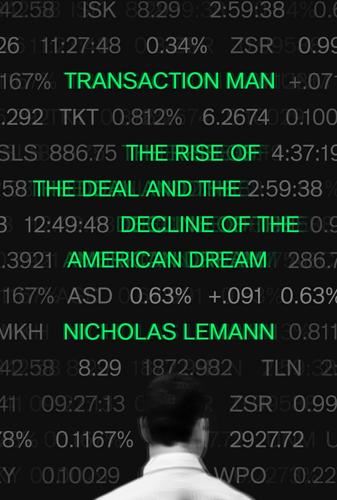
Transaction Man: The Rise of the Deal and the Decline of the American Dream
by
Nicholas Lemann
Published 9 Sep 2019
“When the laws undertake”: Andrew Jackson’s veto message of the Second Bank of the United States, July 10, 1832. http://avalon.law.yale.edu/19th_century/ajveto01.asp. In 1975 the country’s leading liberal politician: Stephen Breyer gives a full account of airline deregulation in Regulation and Its Reform, Harvard University Press, 1982. “sheer perversity”: Robert Bork, The Antitrust Paradox: A Policy at War with Itself, The Free Press, 1978, 185. “a land in which women”: Edward M. Kennedy, speech opposing the nomination of Robert Bork to the Supreme Court of the United States, July 1, 1987. Congressional Record, Senate, July 1, 1987, 18518. Milken also developed a client base: The 269-page brief by the celebrated trial lawyer David Boies in the case of FDIC v.
…
In 1978 the first Democratic president of the 1970s, Jimmy Carter, signed legislation abolishing the CAB entirely. Carter also deregulated trucking and railroads, and he signed the first of a series of major laws deregulating finance—giving banks, in the name of serving the consumer, the ability to pay much higher interest rates to their depositors. In 1978 Robert Bork, a protégé of Aaron Director’s at the University of Chicago Law School and a Republican law professor and government official, published The Antitrust Paradox, which argued that the only acceptable rationale for government regulation of the economy was consumer welfare. Therefore, Bork argued, the tradition of economic liberalism associated with Louis Brandeis was at best silly and at worst an indefensible form of welfare for undeserving small producers, at consumers’ expense.
…
The result was three years of unusually high interest rates, which sent the country into a recession and also pumped more energy into the bond markets. When Ronald Reagan became president in 1981, his administration signaled that it would continue the move toward deregulation that Carter had launched, only more so. Reagan’s Justice Department had a Robert Bork–like skepticism about antitrust enforcement, which further empowered the mergers and acquisitions departments at Morgan Stanley and the other Wall Street firms. Toward the end of the period of high interest rates, the savings and loan industry, which had lost its ability to attract deposits at its old modest interest rates, persuaded Congress to pass a major piece of financial deregulation, permitting it to acquire deposits in nontraditional ways, to offer adjustable-rate mortgages, and to make new and riskier kinds of investments—all while retaining federal insurance on their deposits.

Evil Geniuses: The Unmaking of America: A Recent History
by
Kurt Andersen
Published 14 Sep 2020
Both purported to be based on objective principles that transcended mere politics or special interests, even while both were vehicles for big business and the right to recover, fortify, and expand their economic and political power. And both shared key promoters, of whom probably the single most important was Robert Bork. Bork was a founder of originalism in the 1970s, and in 1986 he was in the running for an open Supreme Court seat (as he had been in 1981). But Reagan made the safer choice from among the new generation of hard-right ideologues—Antonin Scalia, who as a result came to be the personification of originalism.
…
Exactly one year after Bork’s book was published, a pivotal Supreme Court decision quoted its key “consumer welfare” sentence, and since then federal judges have quoted the line in antitrust decisions dozens of times. Just like that, economic efficiency as measured by prices became “the stated goal in antitrust” exclusively. “Antitrust was defined by Robert Bork,” says the University of Arizona law professor and antitrust specialist Barak Orbach. I cannot overstate his influence. Any antitrust person would tell you the same thing….The Court started thinking they should have an economic framework, and they had Chicago’s work as very simple ideas they could use.
…
These are all the laws and regulations intended to make our economic system operate as well as it can, to referee the balance between making American economic life both as free and as fair as possible, optimizing those two goals in tandem rather than simply maximizing one. The main part of this other category of business regulation is antitrust, all the evolving rules spun out of our antitrust laws for more than a century—and, crucially, the interpretation of those laws by courts and judges, interpretations that Robert Bork and the Law and Economics movement so effectively changed in favor of big business. The word antitrust was coined back in 1890 when Congress passed the first such law. A trust was one of the shockingly large new corporations that had effectively eliminated competition by swallowing up competitors (and suppliers) and thereby controlling whole industries.
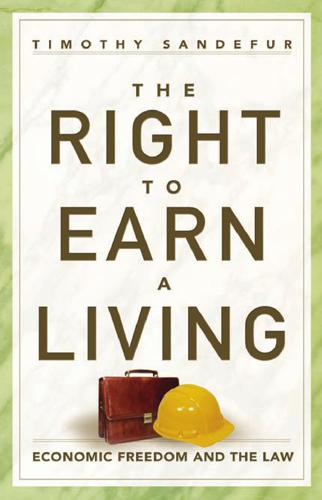
The Right to Earn a Living: Economic Freedom and the Law
by
Timothy Sandefur
Published 16 Aug 2010
Ely has concluded, these critics attack the concept of substantive due process because of their “disagreement with particular applications of the doctrine,” and in the process they often ignore or misrepresent the long and respectable tradition of substantive due process theory.113 Robert Bork One of the chief critics of Lochner and its legacy is Robert Bork, who has developed an elaborate argument that substantive due process lies at the root of most of America’s constitutional ills.114 Bork contends that substantive due process made its first appearance in Dred Scott v. Sandford,115 the infamous case in which the Supreme Court declared that Congress could not forbid the spread of slavery into the western territories and that blacks could never be citizens of the United States.
…
Jaffa, Crisis of the House Divided (Chicago: University of Chicago Press, 1959), pp. 290–91. 124. Dred Scott, 60 U.S. (19 How.) at 450. 125. Graber, Dred Scott, p. 64. 126. Bork, Tempting of America, pp. 44–45. 127. Ibid., p. 124. 128. Ibid. 129. Robert Bork, Slouching towards Gomorrah (New York: HarperCollins, 1996), p. 63 (quoting Irving Kristol). 130. Bork, Tempting of America, p. 139. In another place, Bork has claimed that “only a legal-positivist judge can be an adherent of the Framers’ original intent.” Robert H. Bork, “Original Intent and the Framers of the Constitution: A Disputed Question,” book review, National Review, February 7, 1994, p. 61 (1994 WLNR 3412460). 131. James Madison, “Sovereignty,” in Writings of James Madison, ed.
…
Koller II, “The Myth of Predatory Pricing: An Empirical Study,” Antitrust Law and Economic Review 4 (1971): 105 (“the standard theoretical analysis in this area treats predation as a form of non-maximizing (irrational) behavior and thus 305 Notes for Pages 53–57 an unlikely occurrence in the real world”); James C. Miller III and Paul Pautler, “Predation: The Changing View in Economics and the Law,” Journal of Law and Economics 28 (1985): 495–502; and Robert H. Bork, The Antitrust Paradox: A Policy at War with Itself (New York: Free Press, 1993), p. 154 (“predation by such techniques is very improbable . . . [and prohibiting price-cutting] would do much more harm than good”). 81. John S. McGee, “Predatory Price Cutting: The Standard Oil (N.J.) Case,” Journal of Law and Economics 1 (1958): 168. 82.
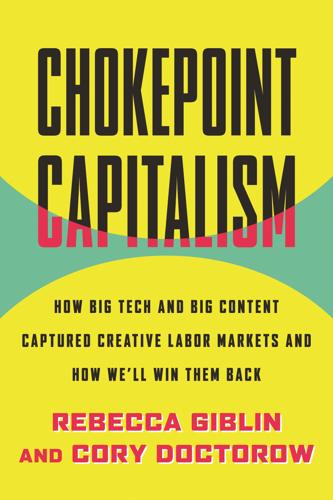
Chokepoint Capitalism
by
Rebecca Giblin
and
Cory Doctorow
Published 26 Sep 2022
Orley Ashenfelter, Daniel Hosken, and Matthew Weinberg, “Did Robert Bork Understate the Competitive Impact of Mergers? Evidence from Consummated Mergers,” Journal of Law and Economics 57, no. S3 (Aug. 2014): S67–S100, https://doi.org/10.1086/675862. 6. Julie Cohen, Between Truth and Power: The Legal Constructions of Informational Capitalism (New York: Oxford University Press, 2019), 7. 7. Credit Suisse, “The Incredible Shrinking Universe of Stocks: The Causes and Consequences of Fewer U.S. Equities,” http://www.cmgwealth.com/wp-content/uploads/2017/03/document_1072753661.pdf. 8. Ashenfelter, Hosken, and Weinberg, “Did Robert Bork Understate the Competitive Impact of Mergers?”
…
The playing field has been tilted so far that a growing number of people are falling off the edge, beset by precarious employment, stagnating wages, high costs for education, housing and healthcare, and economic policies that prize shareholders over people and communities. This great tilting of the playing field, away from workers and toward owners, has a variety of causes, but the biggest is a radical theory of antitrust, driven by jurist and far-right cult-of-personality darling Robert Bork and exported by his disciples at the Chicago school of economics. During the glory years of antitrust—after the New Deal, before Bork—governments set themselves the task of shrinking monopolies on the grounds that they were bad. Very large companies were able to exert undue influence on governments, bribing or coercing them into enacting policies that were good for those companies’ shareholders and harmful to their workers, customers, and the rest of society.
…
And what we need right now is a movement against chokepoint capitalism—one that finds new tools to cut through the roots of monopolistic and monopsonistic power. ANTITRUST IS VITAL—BUT IT ALONE WON’T SAVE US Our recent ancestors practiced a lost art of maintaining a pluralistic society, where monopolies were prohibited because they were monopolies, not because they might raise prices. Robert Bork and the Chicago crew forced upon us a great forgetting, shattering our capacity to rein corporate power in. It was a breathtaking trick: convincing us that monopolists are good, regulators are bad, and that captured markets are “free.” For forty years, we’ve lived in the Chicago School’s funhouse upside-down land, where greed is good and hourglass-shaped markets make us all better off.
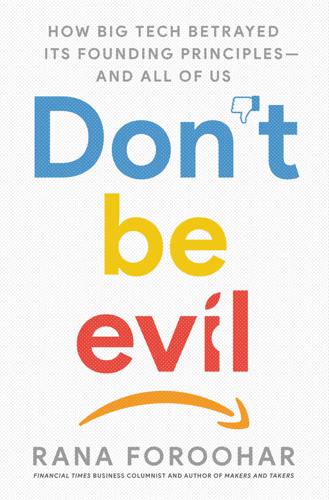
Don't Be Evil: How Big Tech Betrayed Its Founding Principles--And All of US
by
Rana Foroohar
Published 5 Nov 2019
* * * — GIVEN ALL THIS, one might ask why the Big Tech firms haven’t yet been treated as monopolies by the federal government and broken up like Bell Telephone of yesteryear, and Standard Oil before that. Or at least transformed and constrained by the threat of regulation, like Microsoft was twenty years ago. Because of a forty-year shift in our economic thinking around antitrust policy.52 Or, more concisely, because of one man: Robert Bork. While infamous for being voted down by the Senate in his bid for a seat on the Supreme Court (and for firing Archibald Cox in the Saturday Night Massacre of the Watergate scandal years before that), Bork has achieved far more lasting importance for his work as the author of the 1978 book The Antitrust Paradox, which provided the legal rationale for Big Tech’s unimpeded global dominance and became the basis of a 1979 Supreme Court decision that is still being upheld today.
…
In fewer than one hundred pages, Khan made the case that current interpretations of U.S. antitrust law, which is meant to regulate competition and curb monopolistic practices, are utterly unsuited to the architecture of the modern economy. For roughly four decades, antitrust scholars—taking their lead from Robert Bork’s 1978 book The Antitrust Paradox—have pegged their definitions of monopoly power to short-term price effects; so if Amazon is making prices lower for consumers, the market must be working effectively. Khan set out a simple but powerful counterargument: that it doesn’t matter if companies such as Amazon are making things cheaper in dollars if they are using predatory pricing strategies to dominate multiple industries and choke off competition and choice.
…
Technology companies have so far avoided such specialized restrictions, even as they’ve become some of the largest and most concentrated companies in the world.22 This is due in part because the opacity of their business model makes them hard to even understand, let alone regulate. But it’s also because regulators who might curb their power are working with an outdated model of monopoly power, one that hasn’t been revisited in forty years. Indeed, the last time we had a major reset of antitrust policy in the United States was when Robert Bork published The Antitrust Paradox in 1978. Bork held that the major goal of antitrust policy should be to promote “business efficiency,” which from the 1980s onward came to be measured in consumer prices. It was a shift that took the United States away from antitrust policy predicated on the welfare of the “citizen” and toward one that clearly served the laissez-faire politics of the Reagan administration.
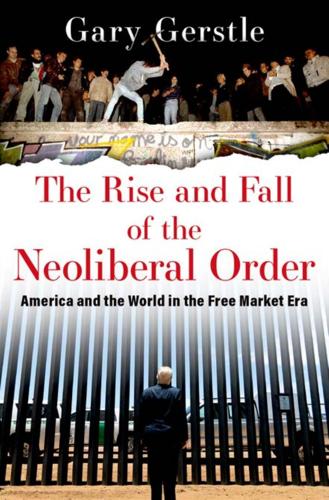
The Rise and Fall of the Neoliberal Order: America and the World in the Free Market Era
by
Gary Gerstle
Published 14 Oct 2022
Tax Policy: Revenue and Politics (University Park: Pennsylvania State University Press, 1996), 87–115; McCartin, Collision Course; Nelson Lichtenstein, State of the Union: A Century of American Labor (Princeton, NJ: Princeton University Press, 2013); Gerstle, Liberty and Coercion, chapter 10; Monica Prasad, Starving the Beast: Ronald Reagan and the Tax Cut Revolution (New York: Russell Sage Foundation, 2018); Sidney Blumenthal, “Defining ‘Reaganomics,’ ” Boston Globe, November 2, 1980, H10. 35.Sean Wilentz, The Age of Reagan: A History, 1974–2008 (New York: HarperCollins, 2008), 196–200. 36.Daniel Rowe, “Beyond Reaganomics: The Long Economic Crisis and the Rebuilding of America, 1974–1988” (DPhil dissertation, University of Oxford, 2019), 162. 37.Lee Edwards, To Preserve and Protect: The Life of Edwin Meese III (Washington, DC: Heritage Foundation, 2005); Charles Connor, “Rethinking the Robert Bork Affair” (undergraduate dissertation, University of Cambridge, 2018). 38.Laura Kalman, The Strange Career of Legal Liberalism (New Haven, CT: Yale University Press, 1996), 132. 39.Robert J. Bork, “Neutral Principles and Some First Amendment Problems,” Indiana Law Journal 47 (1971), 1–35; Robert J. Bork, “We Suddenly Feel That the Law Is Vulnerable,” Fortune, December 1971, 115–117, 136–138, 143; Robert J. Bork, The Tempting of America: The Political Seduction of the Law (New York: Free Press, 1990).
…
To counteract these tendencies, Meese called in 1985 for a “jurisprudence of original intention” that would require judges to abide by the actual meaning imparted to laws and constitutional articles by their framers.38 This emphasis on a strict construction of the Constitution had originated with a Yale law professor, Robert Bork, in the early 1970s. It then migrated to the University of Chicago, where another law professor, Antonin Scalia, became a supporter. Reagan’s elevation of both Bork and Scalia to the US Court of Appeals for the DC Circuit in 1985, appointments often recognized as a stepping stone to the Supreme Court, signified the rising prestige of their views with Meese and other ideological architects of the Reagan revolution.39 Bork and Scalia initially were most perturbed by the Warren Court’s use of rights language to sanction the goals of the liberation movements of the 1960s—especially civil rights and feminism.
…
The man chairing the Democratic Leadership Council in 1990 and hoping to lead the Democratic Party to its own neoliberal future was Arkansas governor Bill Clinton.64 Clinton had agreed to take on this role once Al From, a key figure in the DLC, convinced him that it would open a path toward winning the 1992 Democratic Party nomination for president.65 The growing strength of the DLC should not be interpreted to mean that neoliberalism had conquered all of the Democratic Party by 1990. African Americans, now one of the Democratic Party’s most loyal constituencies, made it clear they would not tolerate backtracking on civil rights, affirmative action, or welfare. When Reagan in 1987 had nominated to the Supreme Court a man (Robert Bork) who appeared to threaten all that the Warren Court had done for civil rights (and women’s reproductive rights), the opposition deployed by Democratic senators was fierce and successful. Organized labor was another key Democratic Party constituency; even as its membership declined, it kept up a steady stream of donations to the Democratic Party and conducted major voter turnout initiatives on election days.

Markets, State, and People: Economics for Public Policy
by
Diane Coyle
Published 14 Jan 2020
Other jurisdictions (including the EU and US) opt to focus on consumer surplus alone, on the grounds that producers that come to the attention of the competition authorities have market power by definition, so it is the consumers who need protection. In the US, the legal tradition takes “consumer welfare” as the standard, ever since the publication of an influential 1978 book, The Antitrust Paradox, by jurist Robert Bork. Some economists and legal scholars have criticized “consumer welfare” as an imprecise term, and have debated whether it is better to aim at total surplus (the welfare of buyers and sellers in the market, regardless of the distribution between them) or consumer surplus (the welfare of buyers). In practice, the distinction is not always pressing: there are relatively few markets competition authorities are asked to scrutinize where increasing the producer surplus (at the expense of consumers) is likely to increase total surplus.
…
In the UK, a government-commissioned, wide-ranging expert inquiry into competition in digital markets is likely to result in new enforcement actions. Although the US authorities have not yet followed suit—perhaps unsurprising as these are all successful US companies—debate has been raging in academic and legal circles in the United States as to whether the consumer welfare standard established by Robert Bork (described earlier in this chapter and also referred to as the Chicago School of anti-trust) is appropriate for digital market where prices are often zero. At a zero price, this kind of standard cannot identify any problems due to lack of competition, but many critics of the digital giants point to their adverse effects, for example, on political discourse or in freezing out new entry.
…
Jean Tirole (2014), “Market Power and Regulation,” scientific background to the Nobel Prize announcement, http://idei.fr/sites/default/files/medias/doc/by/tirole/scientific_background_economics_nobel_2014.pdf. Classics George A. Akerlof (1970), “The Market for ‘Lemons’: Quality Uncertainty and the Market Mechanism,” Quarterly Journal of Economics 84, no. 3 (August): 488–500. Robert Bork (1978), The Antitrust Paradox, Free Press. On Competition Policy Michael Grenfell (2017), “What Has Competition Ever Done for Us?,” speech, http://www.regulation.org.uk/library/2017-What_has_Competition_ever_Done_for_us.pdf. Maurice E. Stucke (2013), “Is Competition Always Good?,” Journal of Antitrust Enforcement 1, no. 1: 162–197, doi: 10.1093/jaenfo/jns008, http://antitrust.oxfordjournals.org/content/1/1/162.full.
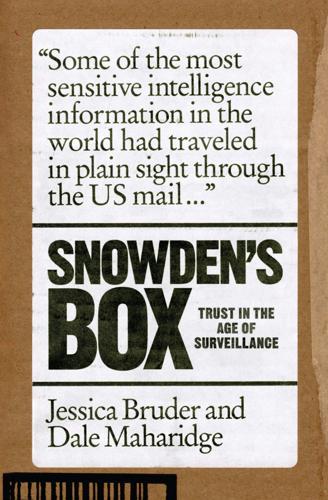
Snowden's Box: Trust in the Age of Surveillance
by
Jessica Bruder
and
Dale Maharidge
Published 29 Mar 2020
Ford and Jimmy Carter issued executive orders — in 1976 and 1978, respectively — aimed at tightening regulation of the intelligence agencies. Not everyone was thrilled by the changes. “Periods of sin and excess are commonly followed by spasms of remorse and moralistic overreaction,” harrumphed famed conservative Robert Bork, who’d served as Nixon’s solicitor general, in a Wall Street Journal op-ed. “The repentance of the hungover reveler is standard comic fare.” But Bork needn’t have worried; the age of regret didn’t last long. Soon the sense of urgency sparked by the Church Committee faded. Meanwhile, the FISA Court, operating in the shadows with closed-door sessions and classified opinions, got a reputation for rubber-stamping surveillance applications.
…
p. 90 Cointelpro, “a sophisticated vigilante operation”: US Senate, Final Report of the Select Committee to Study Governmental Operations with respect to Intelligence Activities, book 3, Supplementary Detailed Staff Reports on Intelligence Activities and the Rights of Americans (Washington, DC: US Government Printing Office, 1976), 2. p. 91 Bork harrumphs: Robert J. Bork, “‘Reforming’ Foreign Intelligence,” Wall Street Journal, March 9, 1978. p. 91 classified opinions: Cora Currier, Justin Elliott, and Theodoric Meyer, “Mass Surveillance in America: A Timeline of Loosening Laws and Practices,” ProPublica, June 7, 2013, projects.propublica.org. p. 91 secret court would authorize 33,942 warrants: Evan Perez, “Secret Court’s Oversight Gets Scrutiny,” Wall Street Journal, June 20, 2013.
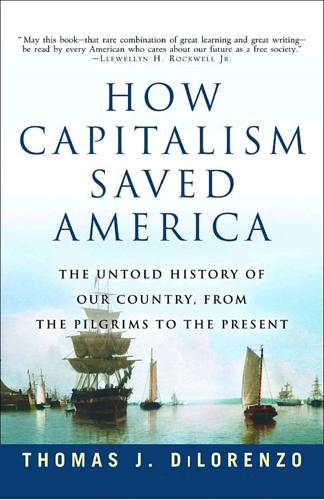
How Capitalism Saved America: The Untold History of Our Country, From the Pilgrims to the Present
by
Thomas J. Dilorenzo
Published 9 Aug 2004
Standard economic theory holds that to be a monopoly, a business must restrict output in order to push up prices. Although this definition of monopoly was not well developed in 1890, some scholars believe that it was nevertheless what Senator Sherman and his colleagues had in mind in promoting antitrust legislation. Robert Bork, who taught antitrust law at Yale Law School for more than fifteen years and is a frequent critic of antitrust regulation, stated in the Journal of Law and Economics that “Sherman demonstrated more than once that he understood that higher prices were brought about by a restriction of output. . . .
…
William Letwin, Law and Economic Policy in America: The Evolution of the Sherman Antitrust Law (Chicago: University of Chicago Press, 1965), 67. 6. Robert Gray and James Peterson, Economic Development in the United States (New York: Irwin, 1965), 57. 7. Sanford D. Gordon, “Attitudes Toward Trusts Prior to the Sherman Act,” Southern Economics Journal 20 (June 1963): 158. 8. Robert Bork, “Legislative Intent and the Policy of the Sherman Act,” Journal of Law and Economics 9 (October 1966): 16. 9. Thomas J. DiLorenzo, “The Origins of Antitrust: An Interest-Group Perspective,” International Review of Law and Economics 5, no. 1 (June 1985): 73–90. 10. Congressional Record, 51st Congress, 1st Session, House, June 20, 1890, 4, 100. 11.
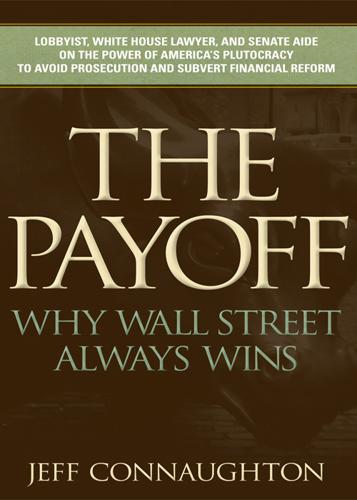
The Payoff
by
Jeff Connaughton
To be fair, the Kennedy legacy was tough to compete with. That same summer, Lewis Powell retired from the Supreme Court, and President Reagan nominated Judge Robert Bork to take his place. It was a polarizing choice, since many believed that, if confirmed, Bork would create a majority that might overturn a number of previous Court decisions on matters relating to personal liberty, particularly Roe v. Wade. Senator Ted Kennedy made his infamous In-Robert-Bork’s-America speech, which galvanized both Bork’s opponents and supporters. Biden, as chairman of the Judiciary Committee, would chair the confirmation hearings, and his performance was widely expected to be like a first primary election for him.
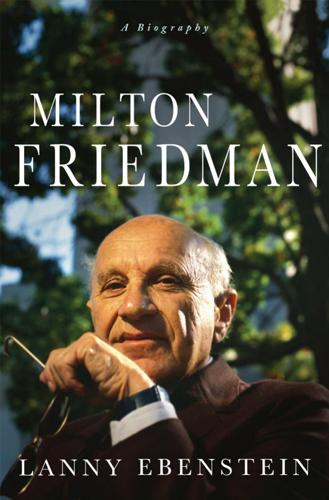
Milton Friedman: A Biography
by
Lanny Ebenstein
Published 23 Jan 2007
Melvin Reder emphasizes Director’s role among Chicago economists, writing in 1982 that in conducting his own work on the history of economics at the University of Chicago, he was “struck by the many strong expressions of intellectual indebtedness both of Chicago economists and legal scholars (such as Edward Levi and Robert Bork) to Aaron Director.... Director appears to have exercised a great deal of influence upon the principal figures in Chicago economics from the 1930s to the present.”39 According to Coase: “Director was extremely effective as a teacher, and he had a profound influence on the views of some of his students and also on those of some of his colleagues... both in law and economics.”40 Stigler wrote in 1974 that in “forming most present day policy views of Chicago economists, Director and Friedman have been the main intellectual forces.”41 Milton and Rose’s friends at Chicago outside economics were the university’s elite, including Ed and Laura Banfield in political science, Daniel and Ruth Boorstin in history, and Edward and Kate Levi in the law school, among many others.
…
Kitch (ed.), “The Fire of Truth: A Remembrance of Law and Economics at Chicago, 1932–1970,” Journal of Law and Economics (April 1983), is the transcript of an exceptional gathering of thirty former University of Chicago students and former and current faculty focusing on the contributions of Aaron Director and Ronald Coase to the field of law and economics. Among the participants are Milton and Rose Friedman, Stigler, Wallis, Becker, and Robert Bork, in addition to Director and Coase. There is much history and exploration of the development of ideas. A number of obituaries were written on Director’s death in September 2004. These include Richard M. Ebeling, “Aaron Director on the Market for Goods and Ideas,” Freeman (November 2004), and Adam Bernstein, “Aaron Director Dies at 102; Helped Fuse Economics, Law,” Washington Post, September 14, 2004.
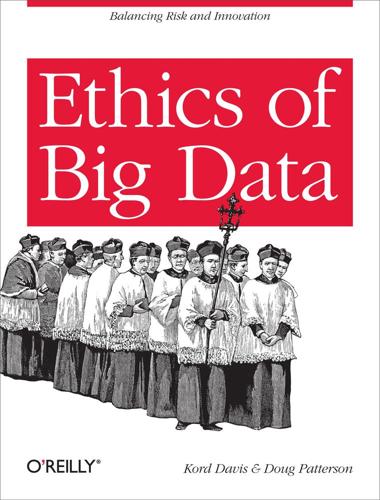
Ethics of Big Data: Balancing Risk and Innovation
by
Kord Davis
and
Doug Patterson
Published 30 Dec 2011
It is increasingly difficult to “opt out” of the expansion of business operations into our lives. One can choose not to subscribe to a grocery store reward program—and accept the loss of the discounts those programs can provide. Although there is no requirement to join a social network, there can be a stigma attached to not doing so. In 1987, Robert Bork’s nomination to the Supreme Court was hotly contested, in part by using his video rental history as evidence in support of arguments against his confirmation. His reputation as a qualified candidate for the Supreme Court was being assessed, in part, by making judgments about the movies he watched.

Exponential: How Accelerating Technology Is Leaving Us Behind and What to Do About It
by
Azeem Azhar
Published 6 Sep 2021
Traditional monopolists often drove prices higher and took a laid-back approach to improving products and services – they might even use devious methods to prevent competitors from entering a market. In the Exponential Age, troublesome dominant firms are more likely than ever – but the issues they pose are subtly different. They require a rethink of the way we think about monopolistic practices. In the 1970s, Robert Bork – the solicitor general of the United States under presidents Richard Nixon and Gerald Ford – came up with what became the standard approach to antitrust law, the body of US legislation concerned with monopoly. Bork’s emphasis was less on anti-competitive practices or cartel-like behaviour per se, and instead on consumer welfare.
…
Cameras in phones and easy-to-use sharing applications have brought the joy of photography to billions of people for practically nothing. In every area of the digital economy, the consumer experience seems to be getting cheaper and more efficient. So much for the perils of monopoly. But there’s a catch. Robert Bork’s framework for understanding monopoly doesn’t account for the real issues created by monopolistic companies – at least not in the Exponential Age. It is an example of the exponential gap. There are problems with the new age of monopoly, but these problems don’t manifest themselves in the way our existing norms and rules can grasp.
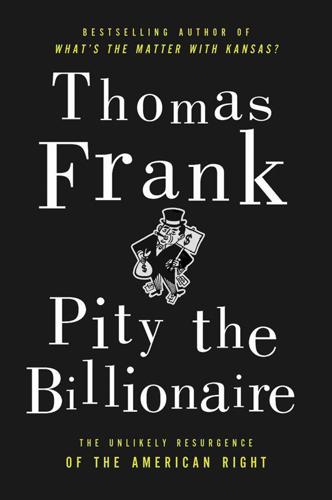
Pity the Billionaire: The Unexpected Resurgence of the American Right
by
Thomas Frank
Published 16 Aug 2011
* Of course, 1928 was not a Depression year. But Louisiana was so poor even before the crash, and Huey Long would soon become such an archetypal Depression figure, that we include this episode as an honorary example. * A curious echo of Mellon’s dictum about hard times forcing people to “live a more moral life” occurs in Robert Bork’s mournful meditation, Slouching Towards Gomorrah, in which he briefly considers “a deep economic depression” as one way of bringing about “moral regeneration.” The idea is immediately discarded for “lacking broad public support.” See Slouching Towards Gomorrah: Modern Liberalism and American Decline (New York: HarperCollins, 2003), p. 336.
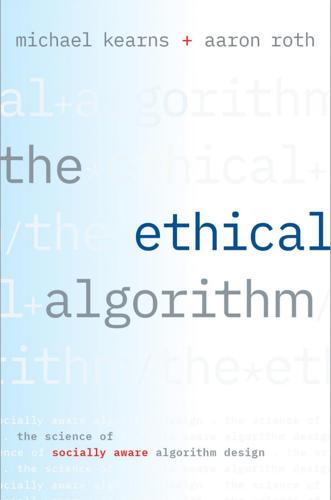
The Ethical Algorithm: The Science of Socially Aware Algorithm Design
by
Michael Kearns
and
Aaron Roth
Published 3 Oct 2019
Of course, to build a recommendation system, you need data, so Netflix publicly released a lot of it—a dataset consisting of more than a hundred million movie rating records, corresponding to the ratings that roughly half a million users gave to a total of nearly eighteen thousand movies. Netflix was cognizant of privacy concerns: it turns out that in the United States, movie rental records are subject to surprisingly tough privacy laws. The Video Privacy Protection Act was passed by the United States Congress in 1988, after Robert Bork’s video rentals were published in the Washington City Paper during his Supreme Court nomination hearings. The law holds any video rental provider liable for up to $2,500 in damages per customer whose records are released. So, just as the state of Massachusetts had done, Netflix removed all user identifiers.
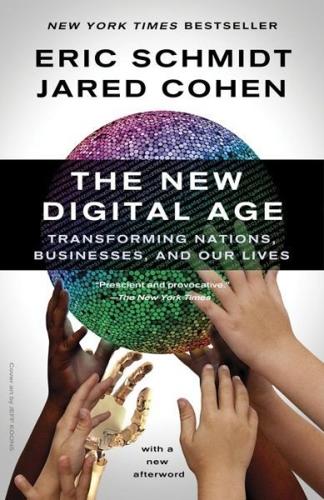
The New Digital Age: Transforming Nations, Businesses, and Our Lives
by
Eric Schmidt
and
Jared Cohen
Published 22 Apr 2013
In each country, a particular incident will initially raise the issues at stake in dramatic fashion and drive public demand, similar to what has happened in the United States. A federal statute was passed in 1994 prohibiting state departments of motor vehicles from sharing personal information after a series of high-profile abuses of that information, including the murder of a prominent actress by a stalker. In 1988, following the leak of the late Judge Robert Bork’s video-rental information during the Supreme Court nomination process, Congress passed the Video Privacy Protection Act, criminalizing disclosure of personally identifiable rental information without customer consent.6 While all of this digital chaos will be a nuisance to democratic societies, it will not destroy the democratic system.
…
method=home.regcon&contentid=20120821133653. murder of a prominent actress by a stalker: “The Drivers Privacy Protection Act (DPPA) and the Privacy of Your State Motor Vehicle Record,” Electronic Privacy Information Center, accessed October 13, 2012, http://epic.org/privacy/drivers/. leak of the late Judge Robert Bork’s video-rental information: “Existing Federal Privacy Laws,” Center for Democracy and Technology, accessed October 13, 2012, https://www.cdt.org/privacy/guide/protect/laws.php#vpp. Texas lawsuit: “Harris v. Blockbuster,” Electronic Privacy Information Center, accessed October 13, 2012, http://epic.org/amicus/blockbuster/default.html; Cathryn Elaine Harris, Mario Herrera, and Maryam Hosseiny v.
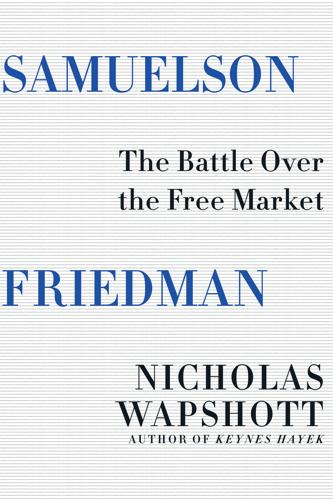
Samuelson Friedman: The Battle Over the Free Market
by
Nicholas Wapshott
Published 2 Aug 2021
Barnett, University of Kansas, December 23, 2003. 2.Massachusetts Institute of Technology (MIT) 150 Oral History project, July 19, 2007. https://infinitehistory.mit.edu/video/paul-samuelson. 3.As first cousins, they were obliged to move from Chicago, where the marriage of first cousins was illegal, first to Wisconsin, then Indiana, where it wasn’t. 4.MIT 150 Oral History project, July 19, 2007. https://infinitehistory.mit.edu/video/paul-samuelson. 5.Ibid. 6.MIT150 Oral History project. https://infinitehistory.mit.edu/video/paul-samuelson. 7.Karen Ilse Horn, Roads to Wisdom, Conversations with Ten Nobel Laureates in Economics (Edward Elgar, Cheltenham, England, 2009), p. 43. 8.MIT150 Oral History project. https://infinitehistory.mit.edu/video/paul-samuelson. 9.Ibid. 10.His father owned a set of Harvard Classics—the most important books in the Western canon—included one of the founding works of economics, Adam Smith’s Wealth of Nations, but young Samuelson failed to read it. 11.Thomas Robert Malthus (February 13, 1766–December 29, 1834), English cleric who studied the influence of demographics on economics. 12.MIT 150 Oral History project. https://infinitehistory.mit.edu/video/paul-samuelson. 13.Aaron Director (September 21, 1901–September 11, 2004), a professor at the University of Chicago Law School who played a central role in the founding of the Chicago School of economics. Director influenced some prominent jurists, including Robert Bork, Richard Posner, Antonin Scalia, and William Rehnquist. He was an early patron of Friedrich Hayek and was instrumental in having Hayek’s Road to Serfdom published in the U.S. 14.The Chicago School of economics at the University of Chicago has championed a neoclassical school of economic thought, which, during the Keynesian hegemony, countered the new orthodoxy with traditional market-based arguments.
…
Taylor interview with Friedman. http://web.stanford.edu/~johntayl/Onlinepaperscombinedbyyear/2001/An_Interview_with_Milton_Friedman.pdf. 3.Interview with Friedman for the WGBH economics series Commanding Heights, 2002. https://www.pbs.org/wgbh/commandingheights/shared/minitext/int_miltonfriedman.html. 4.Aaron Director inspired a generation of conservative jurists, including Robert Bork, Richard Posner, Antonin Scalia, and Chief Justice William Rehnquist. 5.Friedman’s biographical note for the Nobel Prize committee. http://www.nobelprize.org/nobel_prizes/economic-sciences/laureates/1976/friedman-bio.html. 6.David Friedman (born February 12, 1945), American economist, physicist, legal scholar, and anarcho-capitalist theorist, followed his parents into economics, sharing their belief in free markets and libertarian thinking.
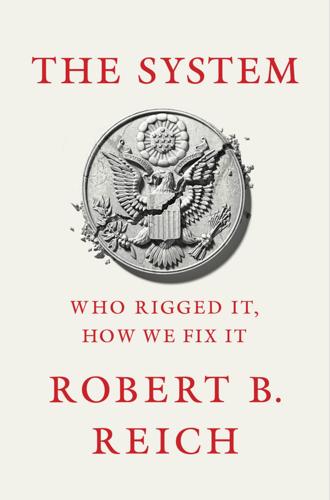
The System: Who Rigged It, How We Fix It
by
Robert B. Reich
Published 24 Mar 2020
If there are men in this country big enough to own the government of the United States, they are going to own it.” In subsequent years antitrust enforcement waxed or waned depending on the administration in office. Yet after 1980 it all but disappeared. The new view, popularized by Yale Law School professor, and subsequently judge, Robert Bork was that large corporate size produced economies of scale, which were good for consumers, and anything that was good for consumers was good for America. Political considerations became irrelevant. Power was no longer at issue. This was exactly the message that America’s emerging corporate oligarchy wanted to hear.
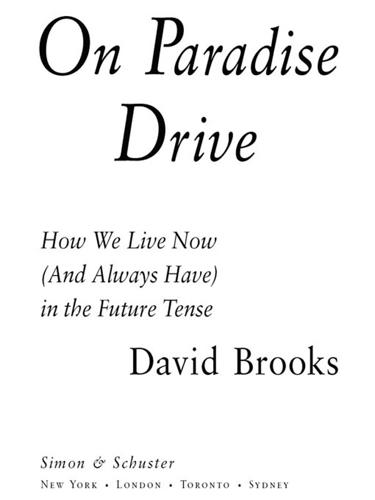
On Paradise Drive: How We Live Now (And Always Have) in the Future Tense
by
David Brooks
Published 2 Jun 2004
I see Robert Putnam’s Bowling Alone, which documents the decline of community and healthy human bonds throughout American society. Nonetheless, I grab a stepladder and stack on top Al Gore’s Earth in the Balance, to represent the environmentalists’ concern that in our cold, arrogant effort to pile up more belongings, we are losing touch with nature and our truest selves. I’d include Robert Bork’s gloomy bestseller Slouching Towards Gomorrah, on the decline of just about everything, and Michael J. Sandel’s Democracy’s Discontent, which explores the concern that “the moral fabric of community is unraveling around us”; also nearly everything ever written by Gore Vidal, Susan Sontag, Kevin Phillips, Noam Chomsky, Juliet Schor, Michael Lind, Jonathan Kozol, Lewis Lapham, Michael Moore, Pat Robertson, Jerry Falwell, E.
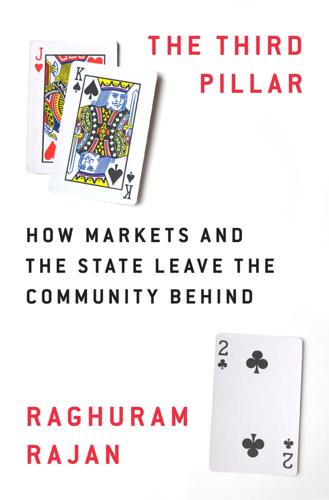
The Third Pillar: How Markets and the State Leave the Community Behind
by
Raghuram Rajan
Published 26 Feb 2019
In the critical sector of information technology, media, and communications, the Economist magazine found the top four firms now accounted for nearly 50 percent of the revenue.49 Concentration has been made easier by a more lax antitrust environment, as argued by my colleague Sam Peltzman.50 Right until the early 1980s, antitrust authorities were quite active in preventing mergers that increased industry concentration substantially. The legal scholar Robert Bork (yes, he of the failed Supreme Court nomination) argued in his book The Antitrust Paradox in 1978 that it is possible that rising concentration in an industry may reflect gains in market share for more efficient players rather than growing monopolization.51 He urged antitrust regulators to focus on whether the consumer was better off rather than whether industry was dominated by a few firms.
…
See Sam Peltzman, “Industrial Concentration under the Rule of Reason,” The Journal of Law and Economics 57, no. S3 (August 2014): S101–20. 49. “Too Much of a Good Thing,” The Economist, March 26, 2016, https://www.economist.com/briefing/2016/03/26/too-much-of-a-good-thing. 50. Sam Peltzman, “Industrial Concentration.” 51. Robert Bork, The Antitrust Paradox: A Policy at War With Itself (New York: Basic Books, 1978). 52. “AT&T and Time Warner Are Cleared to Merge,” The Economist, June 16, 2018, https://www.economist.com/news/leaders/21744068-more-consolidation-will-follow-consumers-ought-worry-att-and-time-warner-are-cleared?
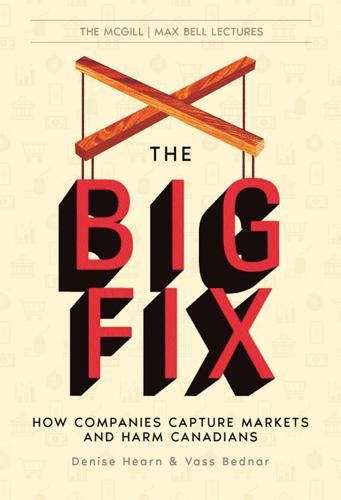
The Big Fix: How Companies Capture Markets and Harm Canadians
by
Denise Hearn
and
Vass Bednar
Published 14 Oct 2024
Following a period of very high inflation from 1973 to 1982, with its highest level at 12.65 percent in 1974,260 many policy conversations in Canada understandably focused on promoting efficiency to spur more productivity growth and lower prices. Deregulation was seen as a silver bullet. It was also during this time that a new brand of antitrust took hold in the United States, which heavily influenced Canada’s competition policy. Driven by conservative legal scholars like Robert Bork at The University of Chicago, the Chicago School claimed that competition policy should be solely aimed at economic efficiency, and that large firms were best positioned to allocate resources in the economy. This contrasted with years of economic reasoning, which held that monopolies distorted efficiency, because perfectly competitive markets theoretically provide the optimal blend of supply and demand.
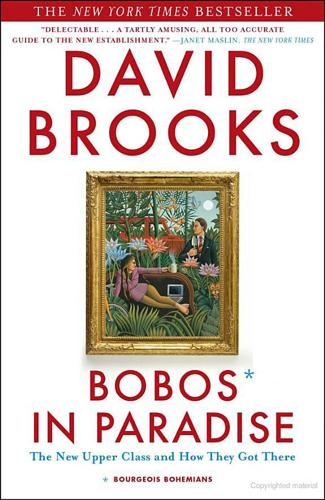
Bobos in Paradise: The New Upper Class and How They Got There
by
David Brooks
Published 1 Jan 2000
In 1995 George Gilder wrote, “Bohemian values have come to prevail over bourgeois virtue in sexual morals and family roles, arts and letters, bureaucracies and universities, popular culture and public life. As a result, culture and family life are widely in chaos, cities seethe with venereal plagues, schools and colleges fall to obscurantism and propaganda, the courts are a carnival of pettifoggery.” In 1996 Robert Bork’s bestseller, Slouching Towards Gomorrah, argued that the forces of the sixties have spread cultural rot across mainstream America. In 1999 William Bennett argued, “Our culture celebrates self-gratification, the crossing of all moral barriers, and now the breaking of all social taboos.” But if you look around upscale America, it’s not all chaos and amoralism, even among the sexual avant-gardists at the Arizona Power Exchange.
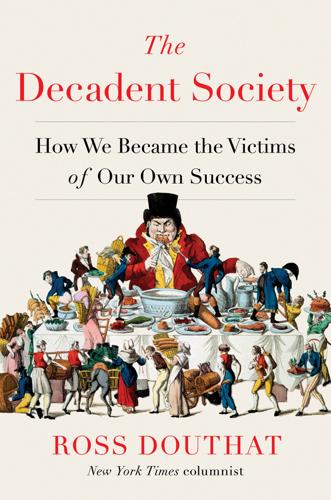
The Decadent Society: How We Became the Victims of Our Own Success
by
Ross Douthat
Published 25 Feb 2020
The culprits in this account include the Democratic Party reformers of the late 1960s and early 1970s, who broke the power of the party bosses and unwittingly made dealmaking and compromise that much harder; Newt Gingrich, who transformed the early-1990s Republican minority into something much more like a parliamentary party, ideologically zealous and centralized around his leadership; Fox News and talk radio, which ratified this shift by holding Republican politicians to impossible standards of ideological purity; the rise of similar ideological enforcers on the left, from the Bush-era netroots, to MSNBC, to the activist left of the late Obama years; and then the politicians of both parties who saw advantage in consistently breaking the informal norms that kept Washington working, beginning with the Democratic defeat of Robert Bork’s nomination to the Supreme Court in 1987 and escalating through nomination battles thereafter, all the way to Mitch McConnell’s pocket veto of Merrick Garland, the slow death of the filibuster, and whatever happens next. But the deeper problem, according to this diagnosis, is that the American Constitution, in its very design, tends to break down when ideological conflict grows too intense.
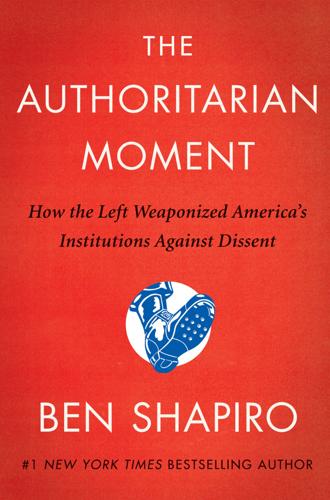
The Authoritarian Moment: How the Left Weaponized America's Institutions Against Dissent
by
Ben Shapiro
Published 26 Jul 2021
On the night the media announced their projection that Joe Biden would be president-elect of the United States, Biden sought to put the culture war genie back in the bottle. This was, in and of itself, rather ironic, given Biden’s role in stoking the culture wars, from destroying the Supreme Court hopes of Robert Bork to suggesting that Mitt Romney wanted to put black Americans back in chains. Still, Biden expressed that the way forward for the country lay in unity rather than recrimination. “Now,” Biden intoned, “let’s give each other a chance. It’s time to put away the harsh rhetoric. To lower the temperature.
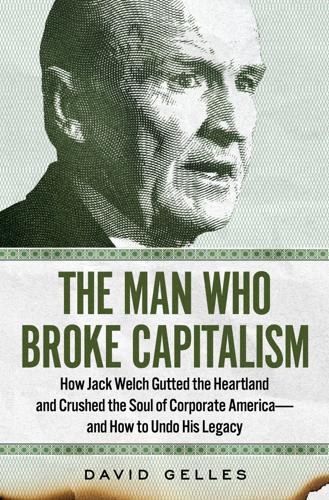
The Man Who Broke Capitalism: How Jack Welch Gutted the Heartland and Crushed the Soul of Corporate America—and How to Undo His Legacy
by
David Gelles
Published 30 May 2022
The broadcast, beamed into millions of homes around the country, praised unfettered competition, sounded the alarm on excessive regulation, disparaged labor unions, and blamed the government for everything from declining educational performance to inflation. Other checks on the unbridled power of major corporations were also losing their purchase around this time. In 1978 Robert Bork, the Yale law professor and future Supreme Court nominee, published The Antitrust Paradox, arguing that the most important consideration when evaluating potential mergers was whether or not a combination was likely to raise prices for consumers in the short term. It was a narrow interpretation of the potential harms that could arise from monopolistic behavior and gave little credence to the potential for more concentrated industries to raise prices over time.
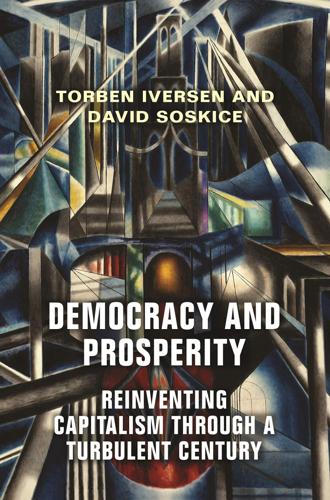
Democracy and Prosperity: Reinventing Capitalism Through a Turbulent Century
by
Torben Iversen
and
David Soskice
Published 5 Feb 2019
In the EU, competition policy has emerged as one of the most important functions of the Commission, with a powerful Commissioner for Competition (even if its highly technical nature draws little attention in the social science literature) (Cini and McGowan 1998; McGowan 2010). In the United States, antitrust law, of course, builds on the Sherman Act of 1890 and the Clayton Act of 1914, but there is broad consensus that consumer-centered competition policies have been notably strengthened since the late 1970s, marked by the publication of Robert Bork’s The Antitrust Paradox in 1978 (see Hovenkamp 2015). FIGURE 4.4. Inflation rates before and after adoption of inflation targetingl. Notes: Dates inflation targeting was first adapted: 1) Reserve Bank of New Zealand, April 1988; 2) Sveriges Riksbank (Swedish central bank), January 1993; 3) Reserve Bank of Australia, March 1993.

The Unwinding: An Inner History of the New America
by
George Packer
Published 4 Mar 2014
In 1987, what had once been the dramatic sideshows of politics became the main event: the candidate and his humiliated wife under the hot lights, the nominee at the televised hearing table talking through and around and against his own past, the ideologues and interest groups on each side of every question large and small mobilizing for total war, the daily excavation of old and recent sins in the life of a politician, the momentum building to a crescendo, the reporters a pack of wild dogs outracing one another on the blood scent of some powerful but wounded quarry. In 1987, there was Gary Hart, there was Robert Bork, and there was Joe Biden—the last two happening at the same moment. Inside the campaign, the two weeks after the Kinnock story were a frantic nightmare, every day a new shock. But in retrospect, the dénouement looked as mechanical and inevitable as an ancient sacrificial rite at the center of a tribal culture.
…
“I’m angry with myself for having been put in this position—for having put myself in this position,” Biden announced to the firing squad of cameras. “And, lest I say something that might be somewhat sarcastic, I should go to the Bork hearings.” With that, Biden went to the Senate Caucus Room on the third floor and took his seat as chairman of the Judiciary Committee hearings that would lead to the defeat of Judge Robert Bork’s nomination to the Supreme Court and begin Biden’s political rehabilitation. Connaughton was shell-shocked. His hero had been exposed as a phony, reduced from White House material to national joke in two weeks. “His strength, he claimed, was his ability to speak and move people,” Connaughton said.
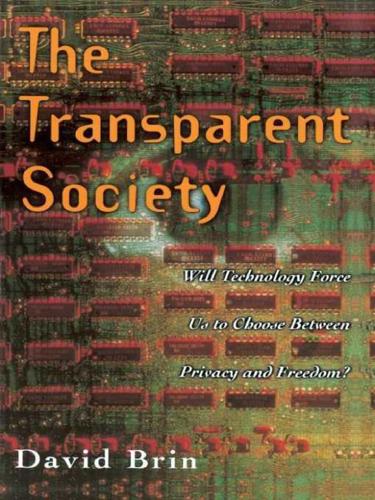
The Transparent Society: Will Technology Force Us to Choose Between Privacy and Freedom?
by
David Brin
Published 1 Jan 1998
And yet, Prosserʼs four categories are far from universally accepted. Nor have we begun to see more than a glimmer of their implications for the electronic age. Although much of the legal activity surrounding privacy is taking place in the turbid realm of torts, there has also been some legislation by statute. For instance, when Judge Robert H. Bork was nominated to the U.S. Supreme Court, some journalists obtained his video rental records, presumably to learn if he had kinky tastes. Outraged by this intrusion, Congress passed the Video Privacy Act, outlawing this narrowly specific invasion of privacy. As yet, there is no comparable protection for books or periodicals, or even our medical histories.
…
Even as we plunge into the electronic age, legal scholars keep hedging, backtracking, and disagreeing over the constantly shifting borderline between the essential interests of the individual and the practical needs of an urban state. This chaos is especially noteworthy when we compare it to the way certain other rights, especially that of free speech, are treated as quasi-religions essences and defended with rulings that are fierce in their sweeping, uncompromising clarity. Robert Bork is among the many jurists who have called privacy a “derived” right, not a basic one, like free speech. What does tend to come through many recent privacy decisions is the following: 1. The “right to be let alone,” to go about our lives free from unreasonable interference by external forces, has become somewhat accepted as a guiding principle of common law. 2.

Culture of Terrorism
by
Noam Chomsky
Published 19 Oct 2015
Lindley Clark, Wall Street Journal, Sept. 24, 1987. In short, not a limited state, but a more powerful one, which serves the wealthy and privileged. 3. Erwin Chemerinsky, professor of constitutional law at the University of Southern California, speaking for a group of lawyers opposing the nomination of Judge Robert Bork, reflecting the views of civil libertarians rather generally; Bernard Weinraub, NYT, Aug. 29, 1987. A principle that emerges with still greater clarity is that where there’s business versus anyone, business wins. On Bork’s muddled thinking and “fake” scholarship, see Ronald Dworkin, New York Review, Aug. 13, 1987; Arthur Schlesinger, WSJ, Sept. 24, 1987.
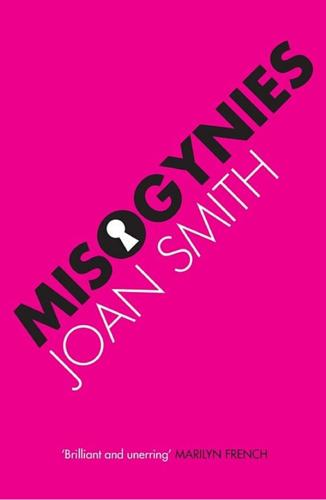
Misogynies
by
Joan Smith
Published 10 Mar 1992
Two other former employees of Judge Thomas came forward to say that he had made sexual remarks to them while he was their boss at the Equal Employment Opportunity Commission in 1984 and 1985. What about the case against Anita Hill? The notion that she was politically motivated did not survive the revelation of her own conservative politics, including her support for the rightwing Supreme Court nominee, Robert Bork, in 1987. Her failure to make an official complaint about Thomas at the time of the alleged harassment drew a sympathetic reaction from thousands of women who have remained silent in similar circumstances; when I was grabbed and kissed by a dee-jay at the radio station where I worked in 1979, I struggled free but did not complain to the management because he was a far more valued employee than I was.

The Raging 2020s: Companies, Countries, People - and the Fight for Our Future
by
Alec Ross
Published 13 Sep 2021
During the drafting of new constitutions and laws around the world, the United States often encouraged (and, in the case of Japan, imposed) tough new antitrust laws. But in the 1970s, a new school of thought came to dominate the debate around monopoly and competition. The newer theory, popularized by judge and legal scholar Robert Bork, held that economic concentration was a bad thing only if there was demonstrable harm in the form of higher prices to consumers. As long as monopolies charged fair prices, they were perfectly acceptable. Bork’s narrow interpretation of antitrust law aligned perfectly with the Friedman doctrine and the political atmosphere of the 1980s.
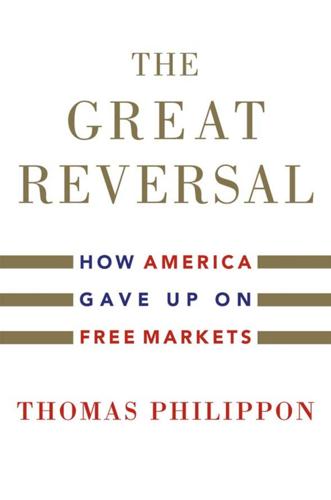
The Great Reversal: How America Gave Up on Free Markets
by
Thomas Philippon
Published 29 Oct 2019
It viewed the market as a structure influencing the conduct of businesses and the performance of the industry. This set of ideas and principles came to be known as the Harvard School of antitrust. The Chicago School brought a counterrevolution in the 1970s which tried to put economic efficiency at the center of antitrust policy. Robert Bork’s highly influential book, The Antitrust Paradox, marked a shift in policy in 1978. As IO economists John Kwoka and Lawrence White (2014) explain, “the skepticism and even some hostility toward big business that characterized the initial period of antitrust have been replaced by current policy that evaluates market structure and business practices differently.”
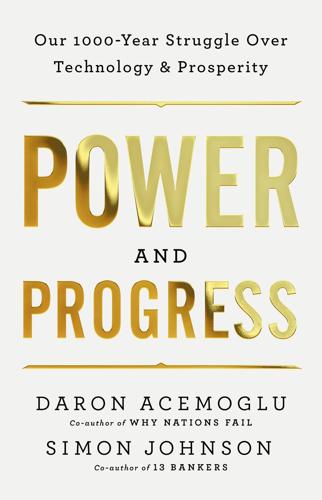
Power and Progress: Our Thousand-Year Struggle Over Technology and Prosperity
by
Daron Acemoglu
and
Simon Johnson
Published 15 May 2023
By the 1960s, however, several economists were already articulating ideas that were more skeptical of the utility of antitrust measures, aimed at limiting the power of big business. Particularly important in this was George Stigler, who saw antitrust action as part of the overall meddling of governments, just like regulations. Stigler’s ideas influenced legal scholars with some knowledge of economics, most notably Robert Bork. Bork’s influence and persona extended far beyond academia. He was Richard Nixon’s solicitor general and then became acting attorney general after his predecessor and his deputy resigned rather than accepting the pressure from the president to fire Archibald Cox, the independent prosecutor going after the Watergate scandal.
…
Specifically, this paper shows that conditioning on the sample of innovative firms, small-young firms are much more innovative than large-old firms (where large firms are those with more than two hundred employees, small firms are those with fewer than two hundred employees, and young firms have existed fewer than nine years). For example, the R&D-to-sales ratio is about twice for small-young firms as for large-old firms. The probability of patenting is also higher for small-young firms than for large-old firms. Robert Bork is discussed in Appelbaum (2019). On the Manne Economics Institute for Federal Judges and its effects on rulings, see Ash, Chen, and Naidu (2022). On current Supreme Court justices’ relationships with the Federalist Society, see Feldman (2021), although some of the details are disputed. A Lost Cause.
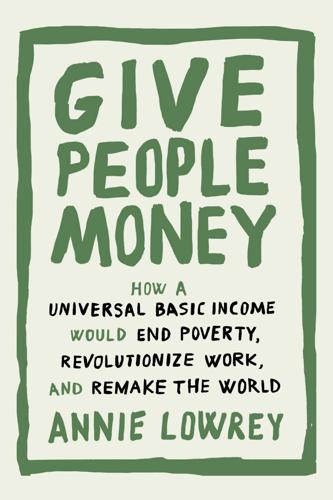
Give People Money
by
Annie Lowrey
Published 10 Jul 2018
Roosevelt put it in an address to Congress in 1938, “The liberty of a democracy is not safe if the people tolerate the growth of private power to a point where it becomes stronger than their democratic state itself. That, in its essence, is fascism.” But right around the time that all those jobs were offshored to China, the government started to change its mind on the monopoly threat. In his seminal 1978 book The Antitrust Paradox, Robert Bork, the failed Reagan nominee for the Supreme Court, argued that corporate mergers benefited consumers by providing lower prices and promoting greater business efficiency. The government should stop focusing on ensuring competition for competition’s sake, he thought, and instead focus on consumer welfare.
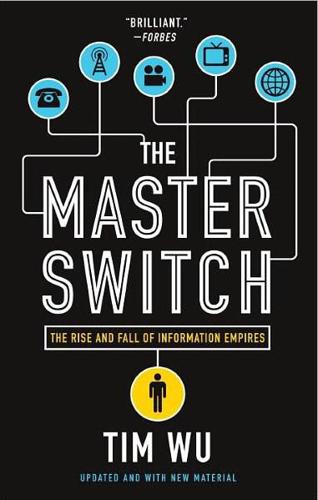
The Master Switch: The Rise and Fall of Information Empires
by
Tim Wu
Published 2 Nov 2010
Appropriating the most appealing rhetoric of the Independents, and arguing persuasively that the Bell system could get the job done more effectively, Vail turned his monopoly into a patriotic cause. There is a long-running debate in the field of antitrust theory as to what should matter when judging the conduct of a monopolist. Robert Bork, the onetime federal judge and notoriously rejected Supreme Court candidate, is famous for arguing that the corporation’s intent, whether malign or beneficent, should be irrelevant.24 Yet as Bork himself knew, for most of the history of antitrust, attitude is everything, even if market efficiencies are supposed to matter most.
…
Danielian himself was drawing on a three-volume FCC document entitled Telephone Investigation: Special Investigation Docket, Report on Control of Telephone Communication, Control of Independent Companies (1936–37). 22. The settlement is discussed in Mueller, Universal Service, 130. 23. The government reaction to the agreement is covered in Brooks, Telephone, 136. 24. Bork’s opinion on the irrelevance of corporate intent can be read in Robert H. Bork, The Antitrust Paradox (New York: Basic Books, 1978), 38–39. 25. This quote is in Theodore Vail, “Some Observations on Modern Tendencies,” Educational Review vol. 51, February 1916, 109, 129. 26. Mueller, Universal Service, 146. CHAPTER 4: THE TIME IS NOT RIPE FOR FEATURE FILMS 1. For a more detailed account of this initial meeting (and an excellent history of the rise of the American film industry), see James Forsher, The Community of Cinema: How Cinema and Spectacle Transformed the American Downtown (Westport, CT: Praeger Publishers, 2003), 30–32. 2.

People, Power, and Profits: Progressive Capitalism for an Age of Discontent
by
Joseph E. Stiglitz
Published 22 Apr 2019
They focused their attention on the latter, in the belief that the likelihood that any noncompetitive practice could survive was, in any case, low. 67.The Supreme Court seemed to buy this argument in Brooke Group Ltd. v. Brown & Williamson Tobacco Corp., 509 U.S. 209 (1993). Even at the time that these arguments were first put forward by Chicago lawyers, for instance by Robert Bork, they were skewered by economists such as Nobel Prize winner Oliver Williamson in “Review of The Antitrust Paradox: A Policy at War with Itself by Robert H. Bork,” University of Chicago Law Review 46, no. 2 (1979): 10. Developments of economic theory since then have reinforced these conclusions. It’s ironic that at the same time the US has made it difficult to win a predatory pricing case within the country, it’s easy to win the analogous case when charging foreign companies with unfair trade practices, charging prices below costs. 68.Currently, the burden falls on the plaintiff (the party claiming that the firm is acting in a noncompetitive way) to show that the anticompetitive effects outweigh the efficiency gains.

Beautiful security
by
Andy Oram
and
John Viega
Published 15 Dec 2009
People have different instinctual reactions to the existence of these databases. Some welcome them and see the efficiency as a net gain for society (Brin 1998). Others fret about how the information might be used for other purposes. We have laws protecting the movie rental records of people because the data became a focal point during the Senate confirmation hearings of Robert Bork (Etzioni 1999). Times and mores change, and no one knows what will be made of this information in the future. Cigarette smoking was once widespread and an accepted way to push the pause button on life. Now, companies fire people for smoking to save medical costs. What will the society of the future do with your current purchase records?
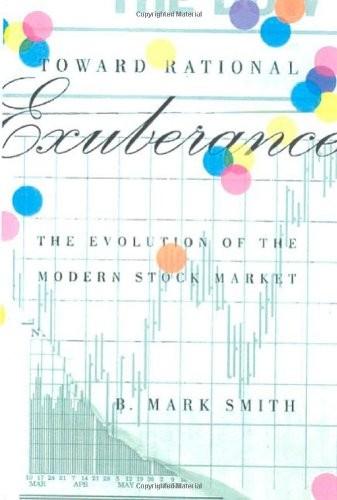
Toward Rational Exuberance: The Evolution of the Modern Stock Market
by
B. Mark Smith
Published 1 Jan 2001
Had it not been for the Fed’s timely intervention, it seems quite likely that the stock market panic of 1987 could have provoked a broader financial panic, which would have done great damage to the overall economy. In the days following the crash, many people rushed forward to offer explanations for what had happened. The market break was said to be the result of the failure of the Senate to confirm Robert Bork to the Supreme Court (showing Reagan to be a lame duck), mistaken Fed monetary policy (either too tight or too loose), or concerns about the ever-present budget and trade deficits. Donald Trump said that there were “too many things wrong with the country” and claimed that he had sold out all his stocks before the crash.7 One explanation that received a great deal of attention involved proposed legislation to disallow tax deductions for interest paid on money borrowed to finance corporate takeovers.
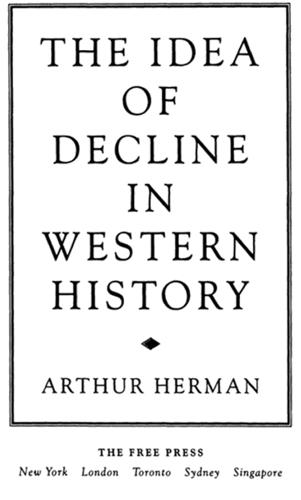
The Idea of Decline in Western History
by
Arthur Herman
Published 8 Jan 1997
The crucial difference is that these criticisms are now embedded in the fabric of mass culture. We live in an era of pop pessimism, with all the problems and limitations that cultural perspective tends to create. Contemporary pessimism does not surface just in gloomy tracts like Allan Bloom’s The Closing of the American Mind or Robert Bork’s Slouching Toward Gommorah. We see it popularized in futuristic films like The Road Warrior, Total Recall, Waterworld, and Escape from New York, whose implicit messages are all derived from cultural pessimist models. They present a future in which traditional standards of barbarism and civilization are deliberately inverted.
…
Without Jacob Burckhardt’s gloomy vision of the European future, Nietzsche’s nihilist vitalism would have seemed ludicrous. Without an Oswald Spengler pronouncing the bourgeois West extinct, the German revolution of the Right would have lacked its sense of historical inevitability. When an Arnold Toynbee or Paul Kennedy or Kevin Phillips or Robert Bork solemnly writes our civilization’s epitaph, the cultural pessimists gather to celebrate at the wake. Do we conclude, then, that anyone with misgivings about the direction of modern society should keep silent, or that such misgivings are fanciful or the result of self-delusion? Certainly not. The effects of rapid industrialization in the nineteenth century were in fact deeply disruptive and inflicted pain on large numbers of people.
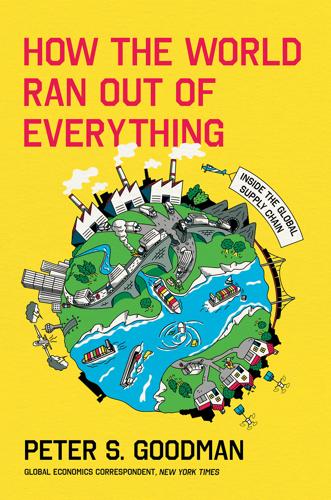
How the World Ran Out of Everything
by
Peter S. Goodman
Published 11 Jun 2024
The intellectual underpinnings for his campaign had been established at academic hothouses like the University of Chicago, whose campus sat less than five miles from the old stockyards. The acolytes of this new faith included the economist Milton Friedman, who dismissed the excesses of the Robber Barons as a “myth” while seeking to eviscerate federal authority. One key figure at Chicago, the legal scholar Robert Bork, championed the idea that enabled the meatpackers to reconstitute their monopoly power: the lifting of antitrust enforcement. Traditionally, American antitrust law regarded scale as inherently dangerous. A company with a hold over the market could use it to prey on smaller competitors. It could lower prices to a point where no one could profit, and then lift them once it owned the market.
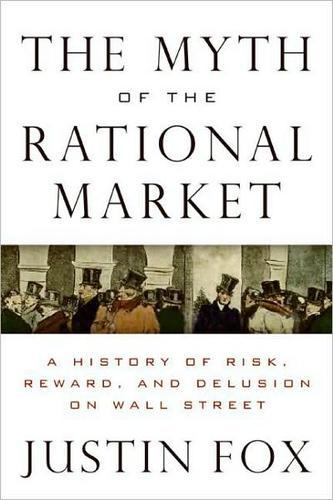
The Myth of the Rational Market: A History of Risk, Reward, and Delusion on Wall Street
by
Justin Fox
Published 29 May 2009
According to students who were there, Levi would spend the first four days of the week explaining existing antitrust law, after which Director devoted the fifth to explaining why none of it made any economic sense. At first Levi bridled, but eventually he was won over by Director’s relentless economic logic. So were the students. “A lot of us who took the antitrust course or the economics course underwent what can only be called a religious conversion,” said Robert Bork, who studied law at Chicago in the early 1950s. “It changed our view of the entire world.”18 Many of Director’s students went on to make his economics teachings the focal point of their careers. An academic movement had been launched. Director’s main message was that things happened in the business world for a reason, and that when one looked hard enough one would usually find Adam Smith’s invisible hand at work—even at General Motors.
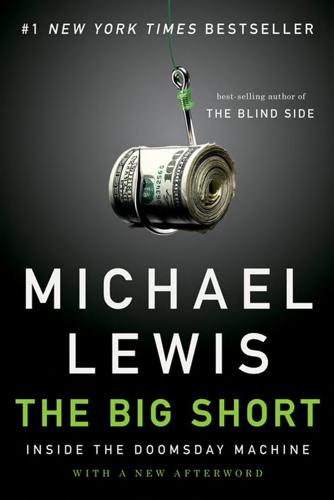
The Big Short: Inside the Doomsday Machine
by
Michael Lewis
Published 1 Nov 2009
And that banks that used it were really just banking on being able to rip off poor people even more than they could if they charged them for their checks." Eisman asked, "Are any regulators interested in this?" "No," said Sandler. "That's when I decided the system was really, 'Fuck the poor.'" In his youth, Eisman had been a strident Republican. He joined right-wing organizations, voted for Reagan twice, and even loved Robert Bork. It wasn't until he got to Wall Street, oddly, that his politics drifted left. He attributed his first baby steps back to the middle of the political spectrum to the end of the cold war. "I wasn't as right-wing because there wasn't as much to be right-wing about." By the time Household's CEO, Bill Aldinger, collected his $100 million, Eisman was on his way to becoming the financial market's first socialist.
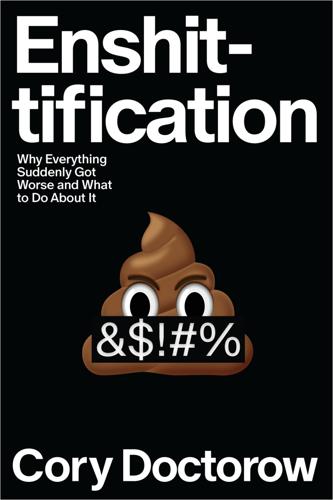
Enshittification: Why Everything Suddenly Got Worse and What to Do About It
by
Cory Doctorow
Published 6 Oct 2025
Every year, year after year, IBM outspent the US government, throwing so many lawyers at its case that the case remained stuck fast for more than a decade. As expensive as the maneuver was, it was a canny one. IBM outlasted the DOJ, protracting the hostilities long enough to see Ronald Reagan ascend to the presidency. Reagan called off the DOJ, and IBM escaped justice. But those twelve long years—called “Antitrust’s Vietnam” by Robert Bork, the standard-bearer for the pro-monopoly consumer welfare standard theory—took a toll on IBM’s culture. After more than a decade of having every memo, contract, and deal under the DOJ’s microscope, the IBM C-suite lost its swagger. The company’s executives developed a flinch response to things that would make the DOJ mad.
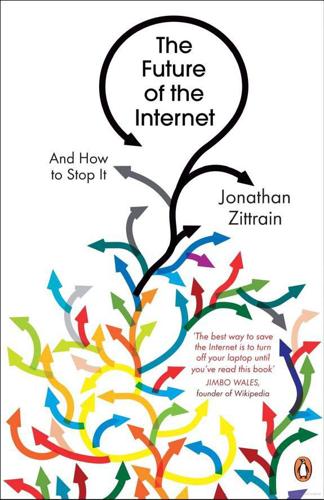
The Future of the Internet: And How to Stop It
by
Jonathan Zittrain
Published 27 May 2009
While it was originally intended to apply to a broad range of public and private databases to parallel the HEW report, the Act was amended before passage to apply only to government agencies’ records.4 Congress never enacted a comparable comprehensive regulatory scheme for private databases. Instead, private databases are regulated only in narrow areas of sensitivity such as credit reports (addressed by a complex scheme passed in 1970 affecting the handful of credit reporting agencies)5 and video rental data,6 which has been protected since Supreme Court nominee Robert Bork’s video rental history was leaked to a newspaper during his confirmation process in 1987.7 The HEW report expresses a basic template for dealing with the informational privacy problem: first, a sensitivity is identified at some stage of the information production process—the gathering, storage, or dissemination of one’s private information—and then a legal regime is proposed to restrict these activities to legitimate ends.
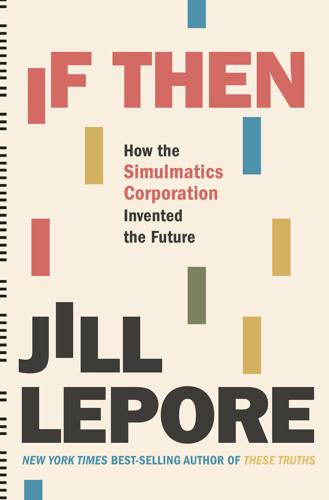
If Then: How Simulmatics Corporation Invented the Future
by
Jill Lepore
Published 14 Sep 2020
Haldeman that “an amazing number of people around Harvard and MIT are extremely upset at the prospect of McGovern’s nomination” and named “one particular” individual that the Nixon campaign ought to reach out to: Ithiel de Sola Pool.24 By October, Pool had been named an honorary vice chair of Democrats for Nixon.25 He joined Scholars for the President, with fifty-four other academics, including Irving Kristol, Milton Friedman, and Robert Bork, and signed a letter published in the New York Times on October 15, supporting the Committee for the Re-election of the President.26 While Pool avowed Nixon, Popkin’s persecution at the hands of the Nixon Justice Department became a national political cause. As the New York Times reported on November 1, the grand jury had become entangled “in an almost impenetrable thicket of legal objections raised by a group of doggedly recalcitrant witnesses.”
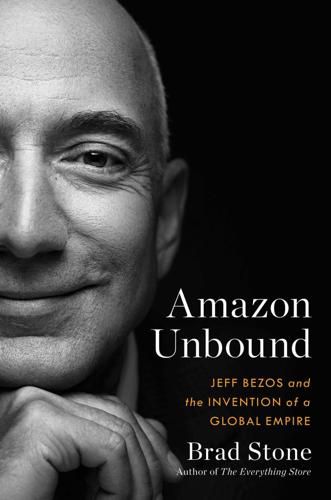
Amazon Unbound: Jeff Bezos and the Invention of a Global Empire
by
Brad Stone
Published 10 May 2021
For one of her first tasks, Lynn assigned Khan to write a report on the history of Amazon’s first and most dominant market, the book industry. A few years later, Khan applied the same skeptical, journalistic approach to her article for the Yale Law Journal. Her paper took its name from a seminal 1978 book by Robert Bork, The Antitrust Paradox, which argued that regulators should curb market power only when it might result in higher prices for consumers. Khan soberly countered that the so-called “consumer welfare standard” was ill-suited to the consolidating effects of the internet and to a company like Amazon, which ruthlessly lowered prices to bleed out competitors and amass market share—a perpetually money-losing strategy that was nevertheless endorsed by its patient investors.

Before the Storm: Barry Goldwater and the Unmaking of the American Consensus
by
Rick Perlstein
Published 17 Mar 2009
Rehnquist had aggressively fought local antidiscrimination laws in Phoenix, where Goldwater had valiantly fought for them as appropriate and morally imperative. As a Supreme Court clerk, Rehnquist had even written a memo arguing that Plessy v. Ferguson should be upheld. And, not surprisingly, Rehnquist confirmed Goldwater’s instincts that the Civil Rights Act of 1964 was unconstitutional. Goldwater approached Professor Robert Bork of Yale University for a second opinion. Bork was on the record already as arguing that the matter was “not whether racial prejudice or preference is a good thing but whether individual men ought to be free to deal and associate with whom they please for whatever reasons appeal to them.” He reiterated that opinion to Goldwater in a seventy-five-page brief.
…
His liege men had been by his side in San Francisco: Warren Nutter, chairman of the University of Virgina’s economics department; Dick Ware, who dispensed the largesse of a deceased motor oil manufacturer from Michigan as director of the Earhart-Relm Foundation; trusty Ed McCabe and his second, Chuck Lichenstein; Baroody’s old AEI partner, W. Glenn Campbell, now running the Hoover Institution at Stanford University. Baroody’s aristocracy were ad hoc consultants, conservative intellectuals like Milton Friedman, Robert Bork, Bill Rehnquist, and Robert Strausz-Hupé. They found the very idea of consulting polls contemptible. Kitchel, Baroody, and Goldwater didn’t bother to attend the Sunday strategy meetings. They made strategy at 33,000 feet. The campaign plane (“YIA BI KEN” [House in the Sky], read the legend above the lightning stripe running down its side) was their playhouse: Kitchel, Karl Hess, and the candidate conversed in Navajo (Hess was studying up), swapped ribald jokes, told hunting stories, yapped on the airborne ham radio.
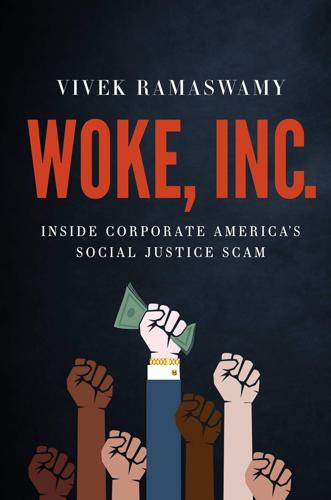
Woke, Inc: Inside Corporate America's Social Justice Scam
by
Vivek Ramaswamy
Published 16 Aug 2021
The issue today centers on companies abusing their market power to beget greater social, cultural, and political power. The main victim isn’t the consumer in the market; it’s the citizen in our democracy. Neither the original antitrust statutes like the Sherman Act nor the revisionist judicial logic of more recent antitrust scholars like Robert Bork was designed or equipped to tackle this uniquely twenty-first-century conundrum. That leads to a classical error made by professional politicians: using yesterday’s toolkit to fight today’s problems. There’s a children’s story about a character called Br’er Rabbit who pleads “please don’t throw me into that briar patch!”
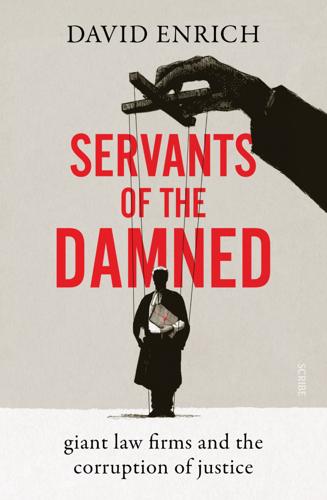
Servants of the Damned: Giant Law Firms and the Corruption of Justice
by
David Enrich
Published 5 Oct 2022
And in the status-obsessed legal industry, which valued Ivy League diplomas above almost anything else, McGahn’s degree from the largely unknown Widener meant he would have “to work harder than those with the more traditional résumés,” as he put it. At an early age, McGahn had developed “an aversion to concentrated power.” That gut-level feeling had hardened into conservatism by college, when he watched the Senate confirmation hearings of Robert Bork. Just as Ginsberg had been animated by the Democrats’ theft of a congressional election in the Bloody Eighth, three years later McGahn and a generation of young Republicans were galvanized by what they saw as Democrats’ disgraceful treatment of a respected conservative judge. At Patton Boggs, Ginsberg and McGahn quickly crossed paths.
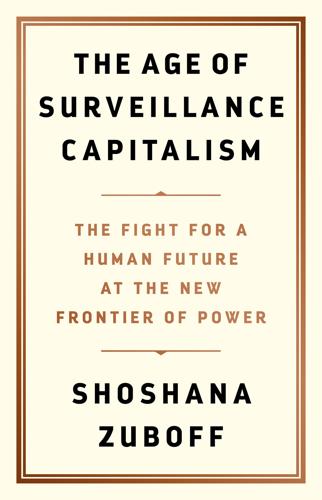
The Age of Surveillance Capitalism
by
Shoshana Zuboff
Published 15 Jan 2019
The professor was an optimist and a tireless educator who believed that legislative and judicial action invariably reflect the public opinion of twenty to thirty years earlier. It was an insight that he and Hayek—the two have been described as “soul mates and adversaries”—had crafted and transformed into systematic strategies and tactics.70 As Hayek told Robert Bork in a 1978 interview, “I’m operating on public opinion. I don’t even believe that before public opinion has changed, a change in the law will do any good… the primary thing is to change opinion.…”71 Friedman’s conviction oriented him toward the long game as he threw himself into the distinctly nonacademic project of neoliberal evangelism with a steady stream of popular articles, books, and television programs.
…
For a wise and elegant defense of democracy, see also Wendy Brown, Undoing the Demos: Neoliberalism’s Stealth Revolution (New York: Zone, 2015). 70. Roger W. Garrison, “Hayek and Friedman,” in Elgar Companion to Hayekian Economics, ed. Norman Barry (Northampton, MA: Edward Elgar, 2014). 71. Friedrich Hayek, interview by Robert Bork, November 4, 1978, Center for Oral History Research, University of California, Los Angeles, http://oralhistory.library.ucla.edu. 72. Zygmunt Bauman, Liquid Modernity (Cambridge, MA: Polity, 2000); Fernand Braudel, The Structures of Everyday Life (New York: Harper & Row, 1981), 1:620. 73. Piketty, Capital in the Twenty-First Century, 614–15. 74.
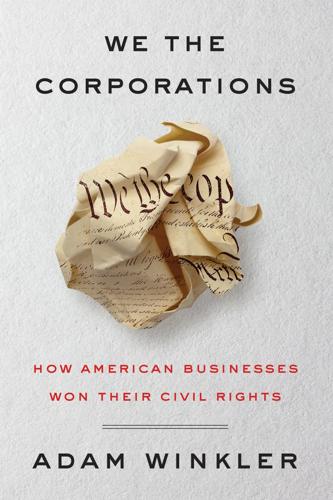
We the Corporations: How American Businesses Won Their Civil Rights
by
Adam Winkler
Published 27 Feb 2018
Fighting the Second Bank’s fight, Webster was able to defeat the nomination, humiliating Taney, who became the first cabinet nominee in American history rejected by the Senate.37 It is tempting to believe that Washington today suffers from unprecedented rancor and partisanship, especially when it comes to the judicial confirmation process. Critics often point to the Senate’s 1987 rejection of Robert Bork, an outspoken conservative nominated by President Ronald Reagan, as the turning point. Yet politics in the 1830s was equally divisive, if not more so, and Webster was one of the most aggressive partisan warriors. Unsatisfied with merely embarrassing Taney by defeating his cabinet nomination, Webster in 1834 organized a Senate censure of both Taney and Jackson.
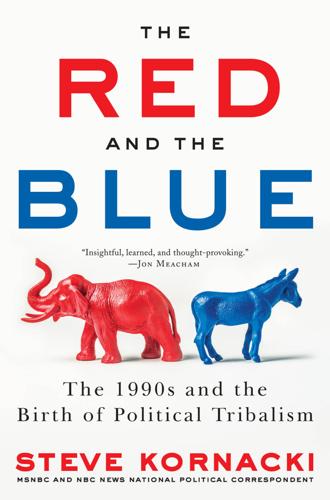
The Red and the Blue: The 1990s and the Birth of Political Tribalism
by
Steve Kornacki
Published 1 Oct 2018
Too often, my party has focused on the national economy, to the exclusion of all else, speaking a sterile language of rates and numbers, of CBO and GNP. Too often my party has confused the need for limited government with a disdain for government itself.” Slouching Towards Gomorrah was also the title of a recent polemic by Robert Bork, whose 1987 Supreme Court nomination was scotched after Democrats branded him a dangerous ideologue. To the right, Bork would forever be a hero, and it was customary for Republican office seekers to pay homage to his martyrdom. Bush’s signaling was clear. He was looking for ways to defy the Puritan caricature voters were now attaching to Republican politicians.
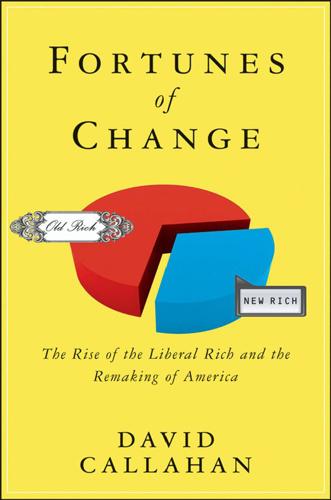
Fortunes of Change: The Rise of the Liberal Rich and the Remaking of America
by
David Callahan
Published 9 Aug 2010
Although he has given nearly as much money to the Democrats as Geffen or Spielberg has, he made his biggest mark by founding People for the American Way in 1981. The group was formed to push back against the evangelical right, and it emerged as the leading opponent of Reagan’s judicial appointments—for example, Robert Bork’s nomination to the Supreme Court. Lear has also given c08.indd 176 5/11/10 6:24:52 AM left-coast money 177 money to a variety of progressive organizations, such as the Natural Resources Defense Council. The liberal leanings of some of the entertainment industry’s most successful leaders help explain why Democrats are awash in Hollywood money (and why they rarely criticize the trashy, violent, and just plain dumb cultural products coming out of that town).

American Foundations: An Investigative History
by
Mark Dowie
Published 3 Oct 2009
Future journalists and editors for these and other conservative outlets are trained in the "Collegiate Network" of conservative student newspapers supported by the Olin, Scaife, Bradley, and Smith Richardson foundations. The latter also make generous six-figure grants to such perennial conservative commentators as Samuel Huntington, Irving Kristol, William Bennett, James Q. Wilson, Robert Bork, Charles Murray, Dinesh D'Souza, Allan Bloom, and Chester Finn. What mainly differentiates the "four sisters" and their brethren on the philanthropic Right from the philanthropic Left is their steadfast loyalty to a core group of institutions that have inspired and driven the conservative revolution since before the first election of Ronald Reagan.

Reaganland: America's Right Turn 1976-1980
by
Rick Perlstein
Published 17 Aug 2020
Otherwise, conservatism was “destined to remain the Stupid Party and die.” The Times case study of the new counterintelligentsia was the American Enterprise Institute. In 1970, it had employed twenty-four people on a budget of less than $1 million. It now employed more than five times that on a budget of $7 million. Distinguished fellows included Robert Bork, a former solicitor general of the United States, whose students at Yale Law School nicknamed his course on anti-trust law “Pro-Trust”; a former president of the American Political Science Association; and the most recent former president of… the United States. They published eight periodicals, produced “a ready-made set of editorials sent regularly to 105 newspapers and public affairs programs carried on more than 300 television stations, and centers for the display of AEI materials in some 300 college libraries.”
…
This was radical even among conservative Republicans; so much so that the right-wing group that spawned the movement Brown was joining, the National Taxpayers Union, was alarmed. They had won approval in twenty-six out of the thirty-four state legislatures the Constitution required to convene such a convention by organizing under the radar. Now that Brown had flushed the idea into the open, other conservatives came out of the woodwork to denounce it. Robert Bork said constitutional conventions were “the last resort of foundering nations, not the casual practice of a successful one.” Barry Goldwater called the idea “a tragic mistake.” President Carter, for his part, called it “extremely dangerous.” Brown harbored ambitions to do what Ronald Reagan had: challenge a sitting president from his own party.
…
For the second year in a row, they left in a warm glow of unity after passing a slate of resolutions that leaned far to the right. They overwhelmingly rejected the proposal of the radical National Taxpayers Union to call a constitutional convention for a balanced budget amendment—but overwhelmingly endorsed a bill drafted by Milton Friedman and Robert Bork to achieve the same result through the normal legislative process; and Washington conventional wisdom on fiscal policy ratcheted several clicks to the right. George Will gloatingly compared the Maryland resort to where the Bolsheviks plotted their overthrow of the Romanov dynasty: “Comes the revolution, the Tidewater Inn here will be regarded as America’s equivalent of the Smolny Institute.”
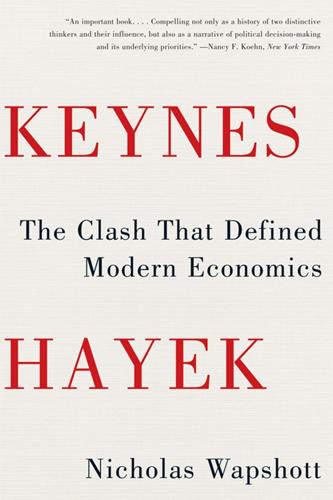
Keynes Hayek: The Clash That Defined Modern Economics
by
Nicholas Wapshott
Published 10 Oct 2011
Wedgwood (1910–97), English historian and biographer of leading figures of the sixteenth and seventeenth centuries, particularly the English Civil War and the Thirty Years’ War. 23 Aaron Director (1901–2004), former leftist radical whose teaching at the University of Chicago Law School influenced leading right-leaning American justices, including Robert Bork, Richard Posner, Justice Antonin Scalia, and Chief Justice William Rehnquist. 24 Milton Friedman and Rose D. Friedman, Two Lucky People: Memoirs (University of Chicago Press, Chicago, 1998), p. 158. 25 Ibid. 26 Ibid., p. 159. After 1957, when his children were old enough to be left alone in the United States, Milton Friedman, often accompanied by his wife, Rose, made the annual Mont Pelerin meeting his summer vacation.
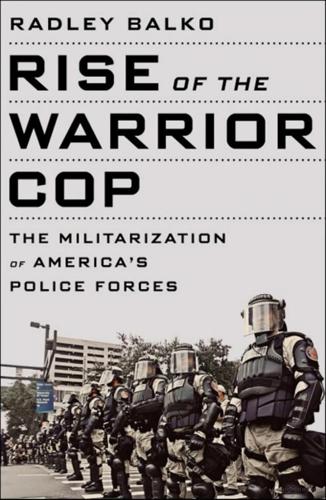
Rise of the Warrior Cop: The Militarization of America's Police Forces
by
Radley Balko
Published 14 Jun 2013
Underlying all of this focus on pot was a surge of cultural conservatism into positions of power in the new administration. The late 1960s and early 1970s had seen the emergence of a movement of conservative intellectuals. Periodicals like Commentary, The Public Interest, and occasionally National Review were featuring think pieces from people like Robert Bork, Ernest van den Haag, James Q. Wilson, and James Burnham. Where someone like George Wallace openly appealed to base prejudices, and the Moral Majority might openly cite the Bible as an authority when discussing public policy, the right’s emerging tweed caucus intellectualized the culture wars. They made essentially the same points that Nixon political strategists had made among themselves in memos and behind closed doors, only with more erudition, and more for public consumption.
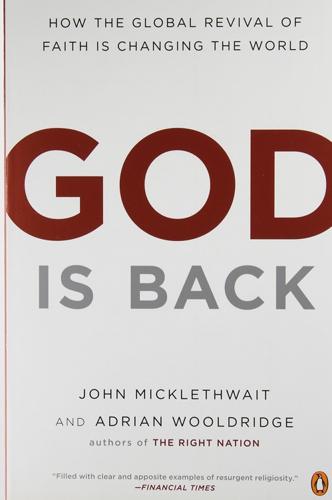
God Is Back: How the Global Revival of Faith Is Changing the World
by
John Micklethwait
and
Adrian Wooldridge
Published 31 Mar 2009
“The enemy in America” he argued, “is the tyrannical and indifferent majority: the good people, the churchgoers, the typical Americans.”9 But Neuhaus and Novak eventually broke with their radical past, dismissing the 1960s as a “slum of a decade.” They feuded with their former comrades, and moved smartly to the right, in due time finding a comfortable home in the bosom of the conservative establishment. The guests at Neuhaus’s ordination ceremony to the Catholic priesthood included Buckley and Robert Bork, the right’s leading judicial thinker; George W. Bush referred to him simply as “Father Richard.” Novak is now a cardinal in the Papal College of neoconservatism, the American Enterprise Institute. (When he first arrived at the AEI, some of the economists and social policy people seemed at a loss as to what to make of a scholar of religion, wondering if he was there to say grace; now they defer to him.)
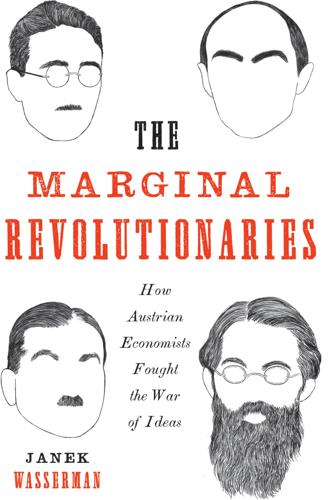
The Marginal Revolutionaries: How Austrian Economists Fought the War of Ideas
by
Janek Wasserman
Published 23 Sep 2019
By dint of his efforts, Hoover became the primary location for Austrian School correspondence—Haberler’s and Machlup’s respective papers also ended up there, as did the archives of the IHS. Meanwhile Heritage invited Hayek to Washington on several occasions for conferences and the conferral of a distinguished fellowship. Hayek was feted at a Heritage Foundation conference on constitutional economics in 1985, which included conservative stalwarts Robert Bork, James Buchanan, William Niskanen, Mancur Olson, Gordon Tullock, and others. In Washington, he shared stages with old friends from Vienna (Haberler and Machlup) and Chicago (Milton Friedman and George Stigler). He participated in several conferences at AEI that Haberler helped organize. Cato paid the salary of his English-language secretary in the late 1970s, and he was its guest of honor at a 1984 conference titled “Planning America: Government vs. the Market.”
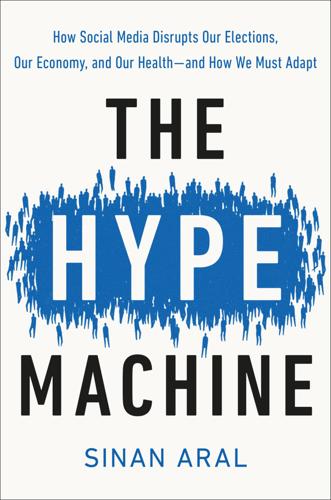
The Hype Machine: How Social Media Disrupts Our Elections, Our Economy, and Our Health--And How We Must Adapt
by
Sinan Aral
Published 14 Sep 2020
If we focus on breaking up Facebook as a cure-all, we will distract ourselves from legislating and regulating the root causes of the harms created by the Hype Machine. Since the 1970s, U.S. antitrust law has been dominated by a “consumer welfare” perspective—defined by Yale law professor and appellate judge Robert Bork and promoted by the Chicago School of Economics—that narrowly interprets consumer harm from uncompetitive markets as the result of higher prices (and secondarily from restricted output and reduced quality). But this narrow view misses Facebook entirely. Facebook is free. Consumers aren’t harmed by Facebook’s ability to charge higher prices because Facebook doesn’t charge consumers to begin with.
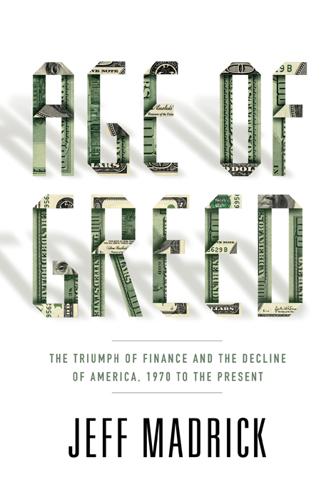
Age of Greed: The Triumph of Finance and the Decline of America, 1970 to the Present
by
Jeff Madrick
Published 11 Jun 2012
As a member of the law school faculty, Director helped found the Chicago School of thought on antitrust law, which claimed the American application of antitrust laws to break up large companies was often misguided and restrained economic growth, and these ideas became the foundation of Ronald Reagan’s weakened antitrust enforcement in the 1980s. Director’s students at the Chicago law school included future outspoken federal judges Robert Bork and Richard Posner, whose conservative views later had wide influence. Hayek was ultimately given a position on the university’s Committee for Social Thought, not in its economics department. It is possible that the economics faculty, fully understanding how influential he was in redirecting their theoretical work, did not want to acknowledge him.
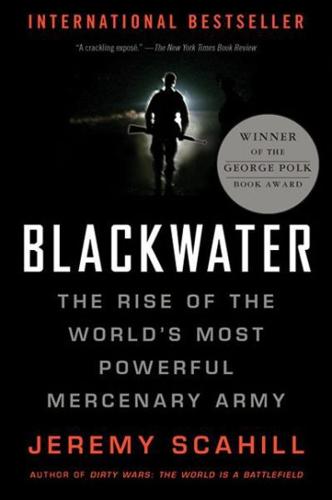
Blackwater: The Rise of the World's Most Powerful Mercenary Army
by
Jeremy Scahill
Published 1 Jan 2007
which bluntly questioned “whether we have reached or are reaching the point where conscientious citizens can no longer give moral assent to the existing regime.”19 A series of essays raised the prospect of a major confrontation between the church and the “regime,” at times seeming to predict a civil-war scenario or Christian insurrection against the government, exploring possibilities “ranging from noncompliance to resistance to civil disobedience to morally justified revolution.”20 Erik Prince’s close friend, political collaborator, and beneficiary Chuck Colson authored one of the five major essays of the issue, as did extremist Judge Robert Bork, whom Reagan had tried unsuccessfully to appoint to the Supreme Court in 1987. “Americans are not accustomed to speaking of a regime. Regimes are what other nations have,” asserted the symposium’s unsigned introduction. “This symposium asks whether we may be deceiving ourselves and, if we are, what are the implications of that self-deception.
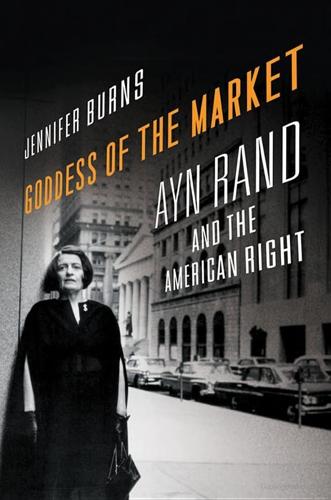
Goddess of the Market: Ayn Rand and the American Right
by
Jennifer Burns
Published 18 Oct 2009
He was among a handful of senators who voted against the bill, a sweeping piece of legislation intended to address the intractable legacy of racial discrimination in the South. Goldwater’s vote was based on principles he had held for years. A firm supporter of state’s rights, he was alarmed at the expansive powers granted the federal government under the act. Following the analysis of his friends William Rehnquist and Robert Bork, he also believed the act was unconstitutional because it infringed on private property rights. In the scrum of electoral politics such distinctions were academic. Goldwater’s vote went down as a vote for segregation. Rand understood his action differently because she shared his individualistic perspective on rights and his belief that private property was sacrosanct.
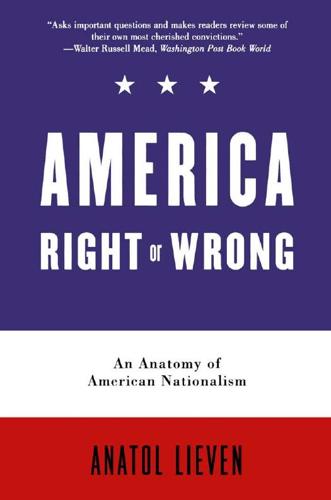
America Right or Wrong: An Anatomy of American Nationalism
by
Anatol Lieven
Published 3 May 2010
Richard Deveson (New York: Arnold, 1995), pp. 166ff; David Blackbourn, The Long 19th Century: A History of Germany 1780-1918 (Oxford: Oxford University Press, 1997), introduction; Klaus Epstein, The Genesis of German Conservatism (Princeton, NJ: Princeton University Press, 1966). Sean Hannity, "The Battle over Competing Visions of the Family and Family Values," speech at United Families International Conference, November 21-22, 2003, at www.unitedfamilies.org. See also Robert Bork, Slouching Towards Gomorrah: Modern Liberalism and American Decline (New York: Regan Books, 1997); D'Souza, What's So Great About America, also raises the question of whether "an open society, where such criticisms are permitted and even encouraged, has the fortitude and will to resist external assault." 228 N O T E S TO P A G E S 28-33 45.
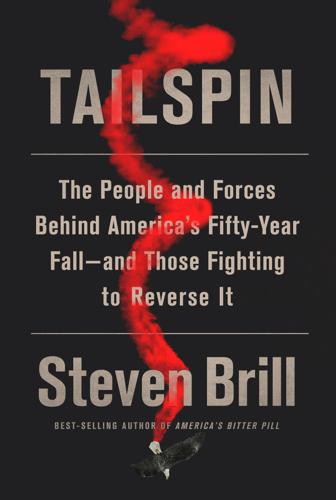
Tailspin: The People and Forces Behind America's Fifty-Year Fall--And Those Fighting to Reverse It
by
Steven Brill
Published 28 May 2018
Whatever the reason, and it is probably a combination of all of these changes and more, politics has become uglier than the relative civility that prevailed in Allen Drury’s Washington. The players on opposite sides and even many on the same team don’t like each other, and they do little to hide it. Some, mostly Republicans, date the beginning of the ugliness to the Democrats’ fierce opposition to Robert Bork, a brilliant judge whom the Democrats attacked relentlessly as they blocked President Reagan’s bid to appoint him to the Supreme Court in 1987. More observers, including many Republicans, date it to the rise of Newt Gingrich, whose ascendance began at about the same time as the Bork war. In 1974, Gingrich was a restless history professor at West Georgia College.
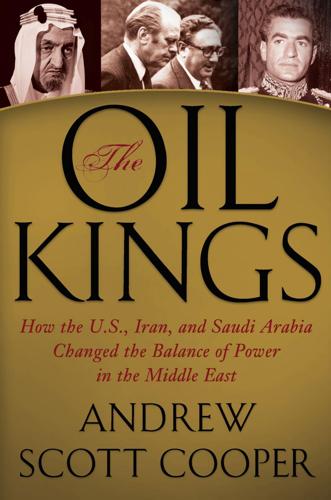
The Oil Kings: How the U.S., Iran, and Saudi Arabia Changed the Balance of Power in the Middle East
by
Andrew Scott Cooper
Published 8 Aug 2011
American television viewers watched in disbelief as news anchormen broke into regular late night broadcasting to report that President Nixon had fired Watergate special prosecutor Archibald Cox, abolished the Watergate task force, and conducted a purge of his own Justice Department. Nixon accepted the resignation of Attorney General Elliot Richardson and sacked Richardson’s deputy, William Ruckelshaus, for disloyalty when both men refused Nixon’s order to fire Cox. (The number three Justice official Solicitor General Robert Bork fired Cox.) The calls for Nixon’s resignation came on a day when the country still lacked a vice president—nominee Gerald Ford had only begun the process to win congressional confirmation—and while the secretary of state was in Moscow conferring with Soviet leader Leonid Brezhnev on the war in the Middle East.
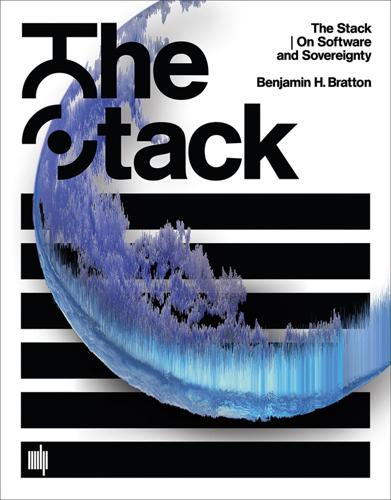
The Stack: On Software and Sovereignty
by
Benjamin H. Bratton
Published 19 Feb 2016
See also Methaven's “ultraminimal state” and its Facestate project: Andrea Hyde, “Metahaven's Facestate,” Walker Art Center, December 13, 2011, http://www.walkerart.org/magazine/2011/metahavens-facestate. 41. The confusion this sows is readily apparent in both attempts to curtail Google under the rubric of a trust “monopoly” and in the awkward rationales for why Google is actually not a monopoly. See judicial “originalist” Robert Bork's back-bending “What Does the Chicago School Teach About Internet Search and the Antitrust Treatment of Google,” Robert H. Bork and J. Gregory Sidak, Journal of Competition Law & Economics 8 (2012): 663–700. 42. In a way, geopolitical reality is only catching up with the anticipations of the science fiction that has already explored the proliferation and institutionalization of data havens and data infrastructures, “community clouds,” cloud-based microreligions and macrostates, and others.
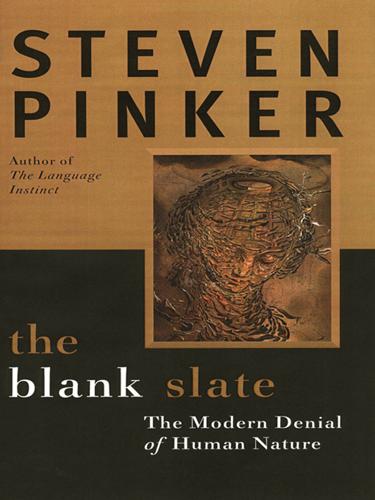
The Blank Slate: The Modern Denial of Human Nature
by
Steven Pinker
Published 1 Jan 2002
When it comes to the intelligent designer, Behe suddenly jettisons all scientific scruples and does not question where the designer came from or how the designer works. And he ignores the overwhelming evidence that the process of evolution, far from being intelligent and purposeful, is wasteful and cruel. Nonetheless, Intelligent Design has been embraced by leading neoconservatives, including Irving Kristol, Robert Bork, Roger Kimball, and Gertrude Himmelfarb. Other conservative intellectuals have also sympathized with creationism for moral reasons, such as the law professor Philip Johnson, the writer William F. Buckley, the columnist Tom Bethell, and, disconcertingly, the bioethicist Leon Kass—chair of George W.
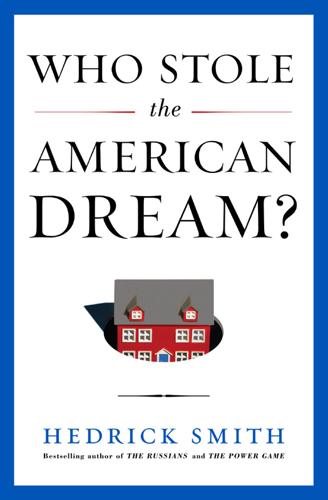
Who Stole the American Dream?
by
Hedrick Smith
Published 10 Sep 2012
Specter opposed Reagan’s spending cuts on Social Security, unemployment benefits, child health care, food stamps, and programs for the poor, and he fought against a ban on abortions and a constitutional amendment legalizing school prayer. National Review put Specter on its cover in 1983 as the “Worst GOP Senator.” But what most infuriated the hard-core Right was his vote in 1987 in the Senate Judiciary Committee against Reagan’s nomination of Robert Bork to the Supreme Court. Specter’s no vote helped defeat Bork. The New Right smoldered. In 2004, the hard-core Right decided to purge Specter by challenging him in Pennsylvania’s Republican primary and intimidating other Senate RINO moderates. “If we beat Specter, we won’t have any trouble with wayward Republicans …,” asserted Stephen Moore, president of the Club for Growth, a militantly anti-tax, anti-government right-wing group.
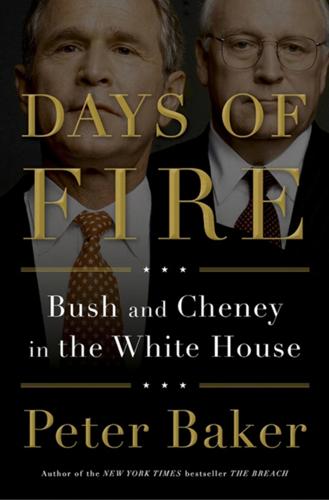
Days of Fire: Bush and Cheney in the White House
by
Peter Baker
Published 21 Oct 2013
Everyone chuckled. Because he had served as a judge since 1991, Luttig’s record as a conservative was clearer, and most of the questions were designed to get a sense of who he was as a person. But it was not enough to evaluate candidates. The confirmation of Thomas and the failed nomination of Robert H. Bork made clear that Supreme Court selections had become another battleground in the political wars. By filibustering Bush’s appointments to lower courts in his first term, Senate Democrats had already demonstrated an appetite for the struggle. Bush was determined to be ready as his father had not been.
…
“The reaction of many conservatives today will be that the president has made possibly the most unqualified choice since Abe Fortas, who had been the president’s lawyer,” Miranda wrote, referring to one of Lyndon Johnson’s choices for the Supreme Court. Within hours, other conservatives expressed disappointment, including William Kristol, David Frum, Charles Krauthammer, George Will, Robert Bork, and Rush Limbaugh. While conservatives had been uncomfortable with some of Bush’s decisions before, like No Child Left Behind, Medicare, and Social Security, this was the first time they revolted in such an overt, unrestrained way. Cheney jumped in to defend the president’s choice, calling Limbaugh to vouch for Miers despite his own doubts.
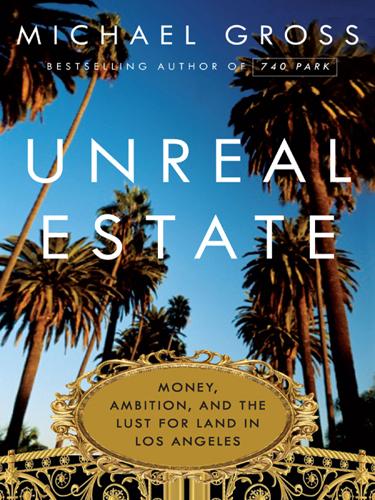
Unreal Estate: Money, Ambition, and the Lust for Land in Los Angeles
by
Michael Gross
Published 1 Nov 2011
He’s logical … he’s really easy to get along with, he’s really funny, really great with kids, very generous, very giving in all ways. It’s not odd to us.” In his interview with the Times, Field was in full roar, comparing the religious right in America to Nazis, and defending his campaign against Robert Bork, a Ronald Reagan appointee to the Supreme Court, calling him “the most dangerous kind of monster.” That kind of talk and the kind of music Interscope promoted had put Field in the sights of then vice president Dan Quayle, who met with the daughter of a Texas state trooper who’d been shot by a fleeing suspect who was driving a stolen car and listening to Tupac Shakur’s Interscope album, 2pacalypse Now.
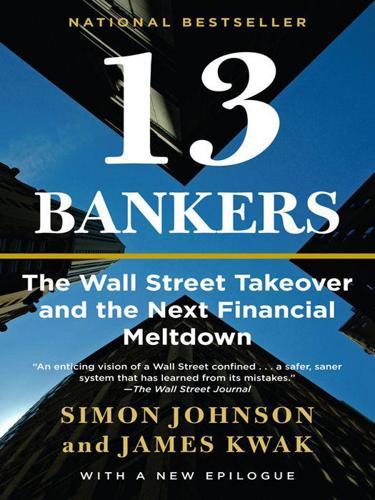
13 Bankers: The Wall Street Takeover and the Next Financial Meltdown
by
Simon Johnson
and
James Kwak
Published 29 Mar 2010
Company annual and quarterly reports; GDP data from Bureau of Economic Analysis, National Income and Product Accounts, Table 1.1.5, available at http://www.bea.gov/national/nipaweb/Index.asp. Figures are as of September 2009. 82. “Officials Fear Systemic Risks of Bailout,” Marketplace, October 21, 2009, available at http://marketplace.publicradio.org/display/web/2009/10/21/pm-systemtic-risk/. 83. The origins of the Sherman Act of 1890 are unclear and remain controversial. See Robert H. Bork, “Legislative Intent and the Policy of the Sherman Act,” Journal of Law and Economics 9 (1966): 7–48; and George J. Stigler, “The Origins of the Sherman Act,” Journal of Legal Studies 14 (1985): 1–12. Thomas Hazlett argues it was a political compromise designed to provide Republican legislators “with a cosmetic defense on the trust question, in anticipation of the upcoming consumer-to-industry transfers in the McKinley Tariff,” and “it was not thought to do more than codify and federalize the common law.”
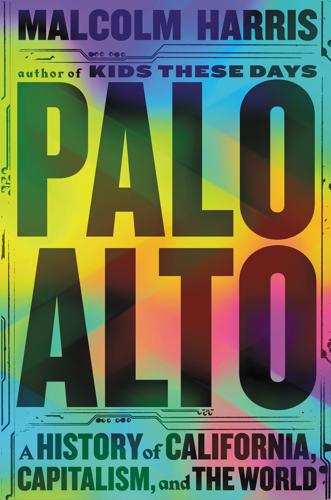
Palo Alto: A History of California, Capitalism, and the World
by
Malcolm Harris
Published 14 Feb 2023
Gates had been on the government’s radar since 1990, and he successfully weaseled out of charges throughout the decade with appeals and consent decrees, though regulators stalled a merger with the tax software firm Intuit to death. To press its case against Microsoft, Netscape hired a surprise ringer: Robert Bork, legendary conservative, one-time Supreme Court nominee, and author of the prevailing theory of antitrust. If even Bork said there was a monopoly, there probably was. The Clinton administration filed suit and Microsoft hired its own ringer—a recent head of the DOJ antitrust division, natch. Still, the district judge didn’t like Bill Gates, and he didn’t like Microsoft.
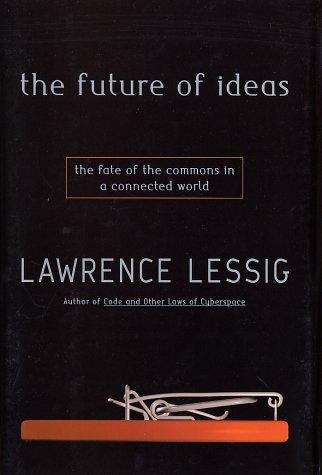
The Future of Ideas: The Fate of the Commons in a Connected World
by
Lawrence Lessig
Published 14 Jul 2001
(Ox-ford: Oxford University Press, 2001), 131-32. 22 “Chicago school” analysts argued that a monopolist possesses a fixed amount of market power and therefore can extract only a fixed amount of monopoly profit from consumers, whether from one market or several. On this basis, they concluded that leverage of monopoly power from one market into another is impossible. See, e.g., Robert H. Bork, The Antitrust Paradox: A Policy at War with Itself (New York: Basic Books, 1978); Richard A. Posner, Antitrust Law: An Economic Perspective (Chicago: University of Chicago Press, 1976). More recent economic analyses have demonstrated several mechanisms by which market power in one market can be used to harm competition in another market.

Virtual Competition
by
Ariel Ezrachi
and
Maurice E. Stucke
Published 30 Nov 2016
Unilateral Conduct Working Group, Report on the Objectives of Unilateral Conduct Laws, Assessment of Dominance/Substantial Market Power, and State-Created Monopolies (Moscow: International Competition Network, May 2007), http://www.internationalcompetitionnetwork.org/uploads /library/doc353.pdf. 8. See, for example, Robert H. Bork, The Antitrust Paradox: A Policy at War with Itself (New York: Basic Books, 1978); Richard A. Posner, “The Chicago School of Antitrust Analysis,” University of Pennsylvania Law Review 127 (1978): 925, 933. 9. Posner, “The Chicago School of Antitrust Analysis.” 10. Justin Fox, The Myth of the Rational Market (New York: Harper Business/ HarperCollins, 2009), 89–107. 11.
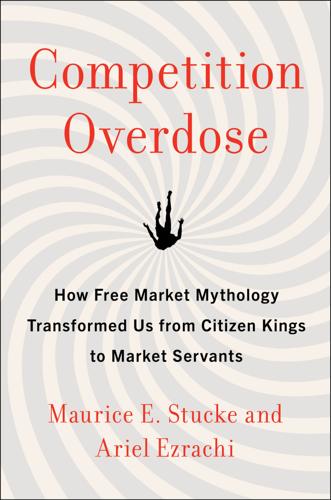
Competition Overdose: How Free Market Mythology Transformed Us From Citizen Kings to Market Servants
by
Maurice E. Stucke
and
Ariel Ezrachi
Published 14 May 2020
Schroeder, “The Midas Touch: The Lethal Effect of Wealth Maximization,” Wisconsin Law Review 1999, no. 4 (1999): 687, 754–60. 31.George J. Stigler, “Economics or Ethics?,” in The Tanner Lectures on Human Values, ed. Sterling M. McMurrin (Salt Lake City, UT: University of Utah Press, 1981), 143, 176; see also Robert H. Bork, The Antitrust Paradox: A Policy at War with Itself (New York: Basic Books, 1978), 119 (reasoning profit-maximization assumption is “crucial” to the Chicago School’s theories); Richard A. Posner, Economic Analysis of Law, 3rd ed. (Boston: Little, Brown 1986), 3 (“The task of economics . . . is to explore the implications of assuming that man is a rational maximizer of his ends in life, his satisfactions—what we shall call his ‘self-interest’”); Robert A.
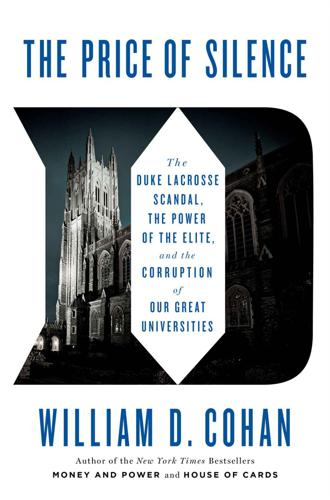
The Price of Silence: The Duke Lacrosse Scandal
by
William D. Cohan
Published 8 Apr 2014
The only three Duke lacrosse players on the 2006 team who were not part of any lawsuit were Matt Danowski, the son of the Duke lacrosse coach; Kevin Mayer, who had been “passed out” at the party, according to Evans, McFadyen, and others; and Matt Zash, one of the three cocaptains who had lived at 610 North Buchanan and told his friends that he “doesn’t split dark wood.” (Nifong observed that Zash’s lack of involvement with the lawsuits “is interesting if it shows nothing other than restraint on his part.”) Incredibly, their attorneys and publicist—Bob Bork Jr., the son of Robert Bork, the unsuccessful Supreme Court nominee—commandeered the National Press Club in Washington, one block from the White House, to announce the lawsuit. At the same time, they also launched a website to accompany the filing of the lawsuit. “This is kind of a media center,” Bork said, “and Durham isn’t.
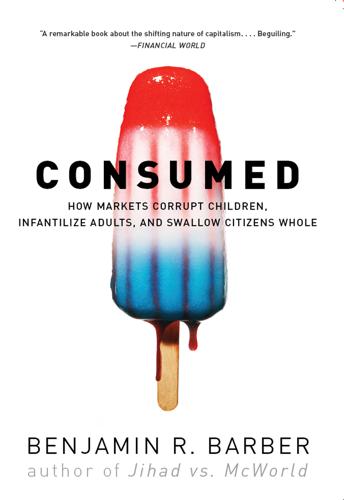
Consumed: How Markets Corrupt Children, Infantilize Adults, and Swallow Citizens Whole
by
Benjamin R. Barber
Published 1 Jan 2007
In Damon Linker’s review of Neuhaus entitled “Without a Doubt: A Catholic priest, a pious president, and the Christianizing of America,” in The New Republic, April 3, 2006. The book Linker reviewed is Richard John Neuhaus, Catholic Matters: Confusion, Controversy, and the Splendor of Truth (New York: Basic Books, 2005). Neuhaus’s controversial First Things Symposium included contributions by Robert H. Bork, Charles W. Colson (who calls for “some kind of direct, extra-political confrontation”), and Robert P. George. 6. In Jihad vs. McWorld. 7. See Paul M. Kennedy, The Rise and Fall of the Great Powers: Economic Change and Military Conflict from 1500 to 2000 (New York: Vintage Books, 1989). The limits of the creolization argument, discussed below, are evident in the fact that Kennedy’s assessment of Japanese domination proved to be exaggerated, while the United States turned out to be a more difficult leader to overtake than he had suggested. 8.
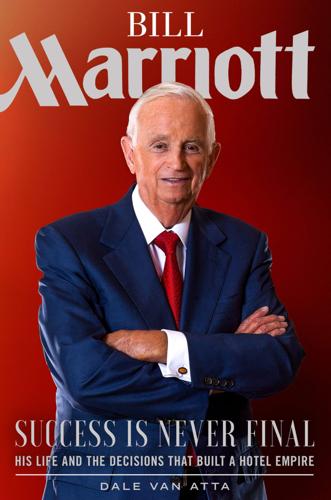
Bill Marriott: Success Is Never Final--His Life and the Decisions That Built a Hotel Empire
by
Dale van Atta
Published 14 Aug 2019
Bill Marriott, Regional Representative, Youth Speech, “Letters from David,” Suitland Maryland Stake Conference, June 12, 1994. 5. Michael S. Rosenwald, “Marriott’s Youngest Son Makes His Mark; Fast Rise of Hotel Firm’s Global Sales Chief Prompts Speculation About Succession,” Washington Post, October 29, 2007. 6. Bill Marriott, Note to Carolyn Cullers, August 23, 1979. 7. Robert H. Bork, Jr., “The price of their toys,” Forbes, October 28, 1985. 8. Blanche T. Sullivan, “From Hot Shoppes to Hotels & Hot Cars,” Low-country Monthly [South Carolina], October 2007. 9. Bill Marriott, Remarks at Bill Shaw’s Twenty-Fifth Anniversary Celebration, Ritz-Carlton, Tysons Corner, Virginia, October 21, 1999. 10.
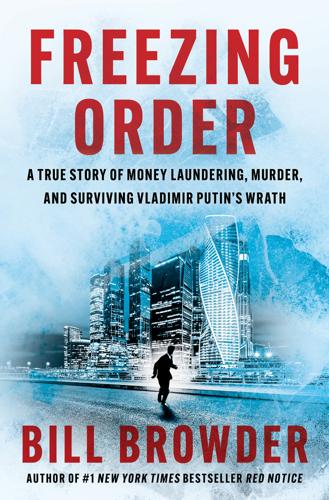
Freezing Order: A True Story of Money Laundering, Murder, and Surviving Vladimir Putin's Wrath
by
Bill Browder
Published 11 Apr 2022
I’d like to begin with the country of my birth, the United States, and then move to the country I currently call home, the United Kingdom. In each section, I’ve done my best to list names alphabetically by surname. In the United States, I would like to thank Michael Abramowitz, Karl Altau, Attorney General John Ashcroft, Anders Åslund, Robert Berschinski, Ellen Bork, Cindy Buhl, Dr. Robert Bux, Ted Bromund, Chris Brose, Senator Benjamin Cardin, David Crane, Charles Davidson, Patrick Davis, Lars de Gier, Sophie de Selliers, Sarah Drake, Grant Felgenhauer, Thomas Firestone, Enes Kanter Freedom, Jeffrey Gedmin, Juleanna Glover, James Goldston, Maggie Goodlander, Michael Gottlieb, Thor Halvorssen, Hans Hogrefe, Gulchehra Hoja, Nathaniel Hurd, Uri Itkin, Nils Johnson-Shelton, Robert Kagan, Robert Karem, Jonathan Karp, Garry Kasparov, Orly Keiner, Michael Kim, David Kramer, Katrina Lantos Swett, Carolyn Leddy, Duncan Levin, Senator Joe Lieberman, Nikita Magnitsky, Representative Tom Malinowski, Christopher Mangum, Paul Massaro, Randy Mastro, Senator John McCain, Meghan McCain, Ambassador Michael McFaul, Representative Jim McGovern, Juan Méndez, Katya Migacheva, Mark Milosch, Tanya Nyberg, Spencer Oliver, Priscilla Painton, Hana Park, Kyle Parker, Julia Pettengill, Lisa Rubin, Randy Scheunemann, Stefan Schmitt, Nate Sibley, Neil Simon, Mason Simpson, Susannah Sirkin, Representative Chris Smith, Kimberly Stanton, Bernie Sucher, Jordan Tama, Piero Tozzi, Fred Turner, Ed Verona, Lindsey Weiss Harris, Senator Roger Wicker, Jonathan Winer, John Wood, and Natasha Zharikova.
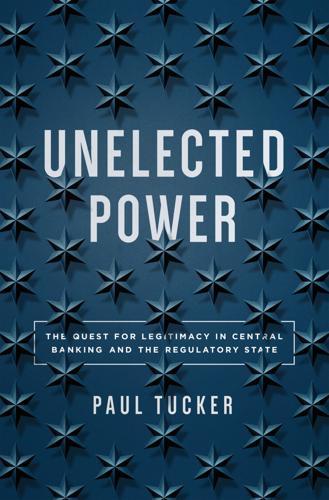
Unelected Power: The Quest for Legitimacy in Central Banking and the Regulatory State
by
Paul Tucker
Published 21 Apr 2018